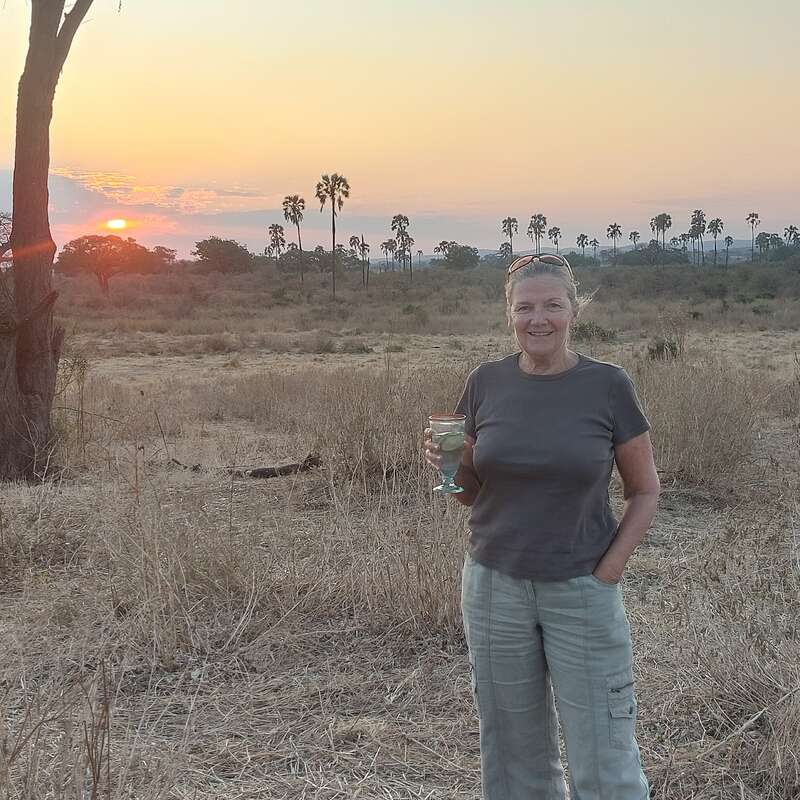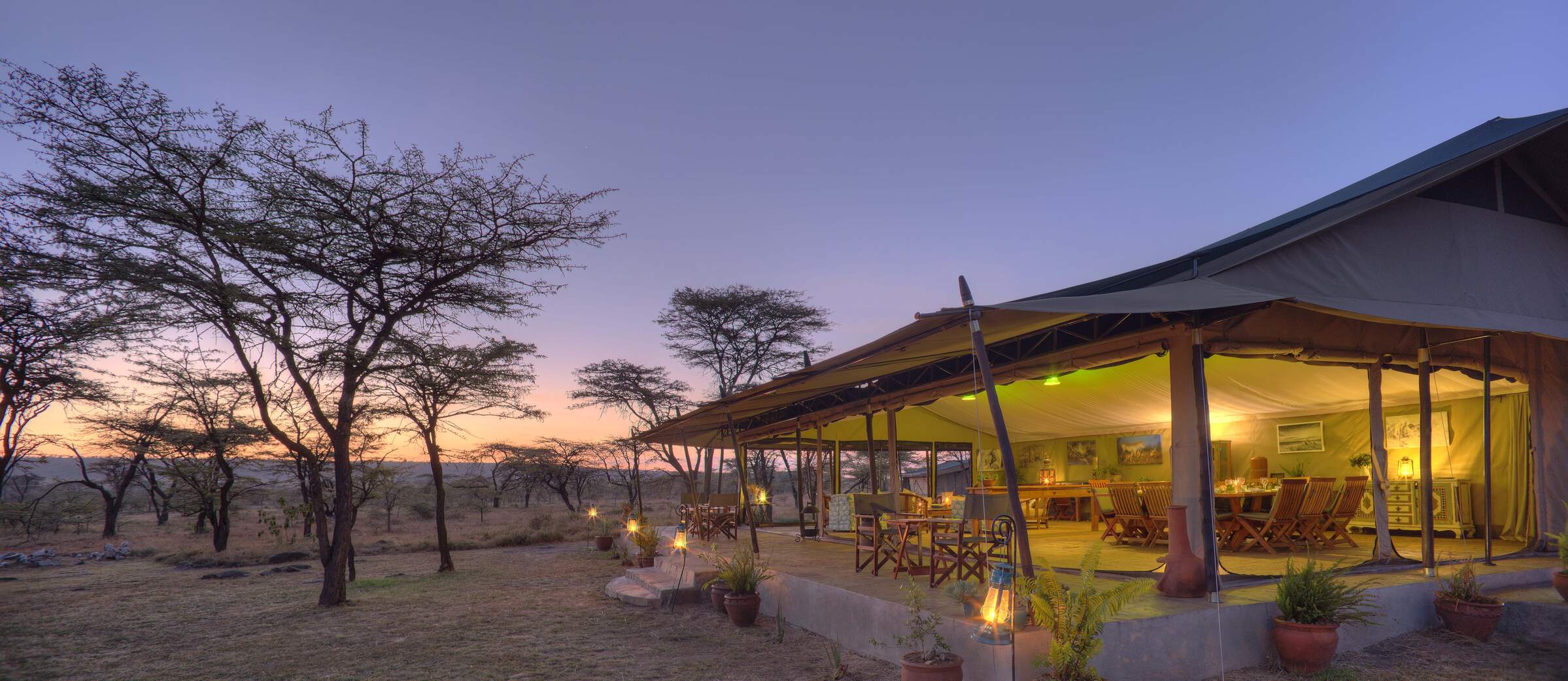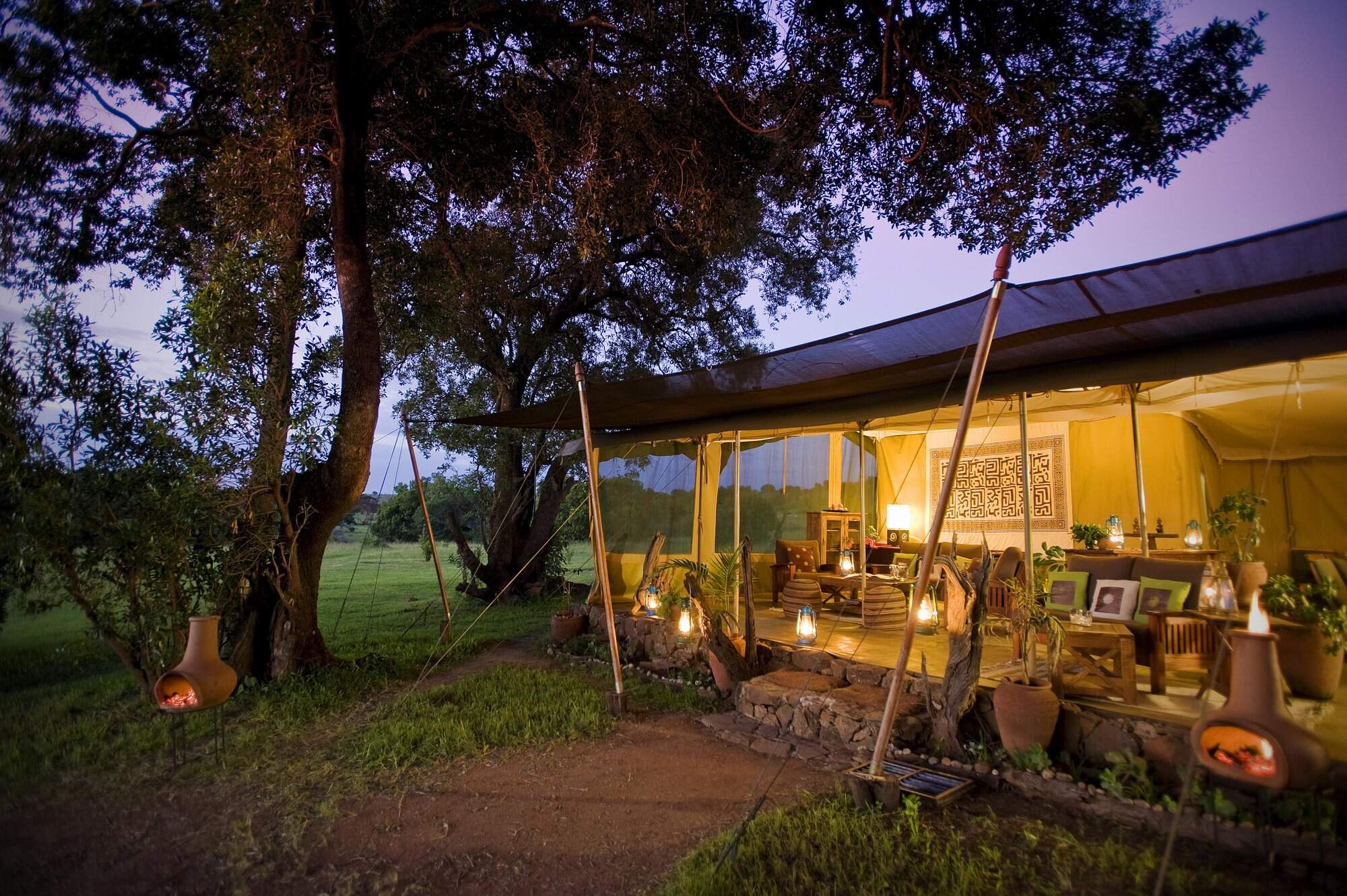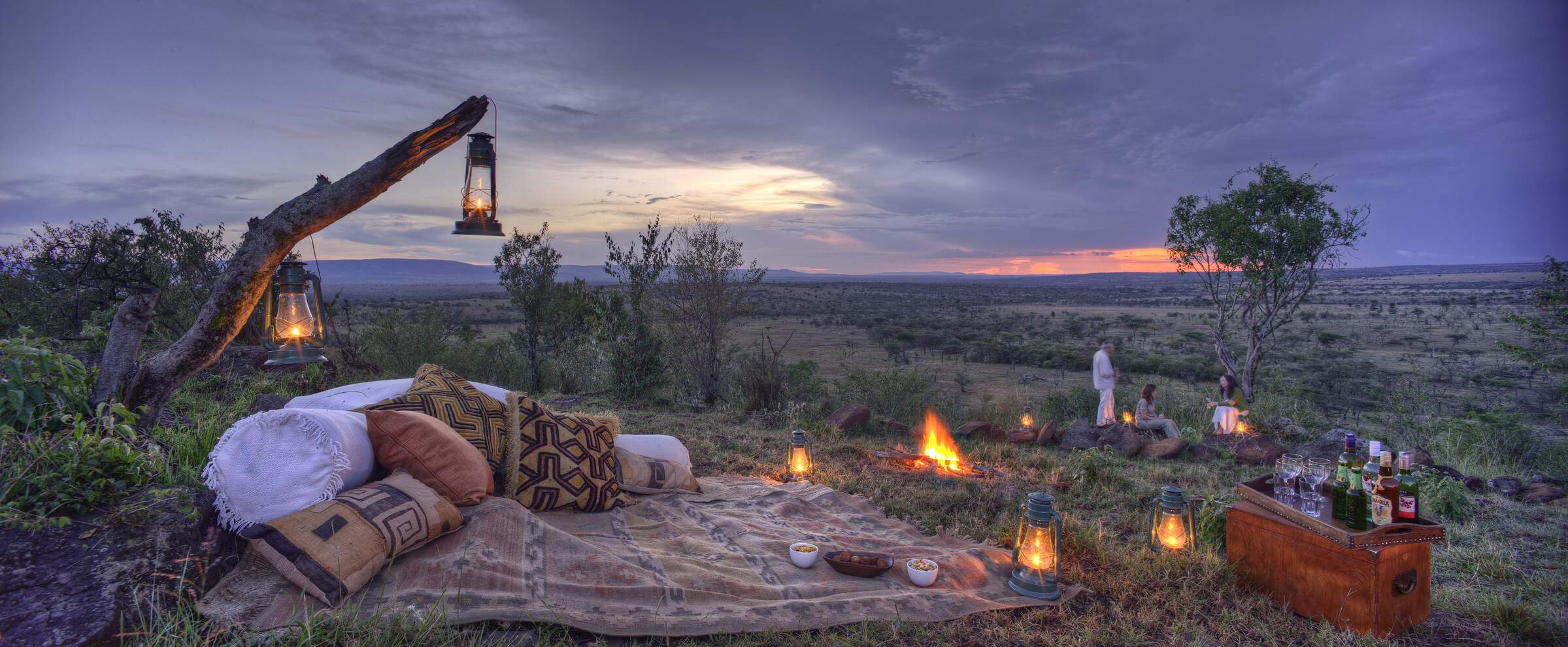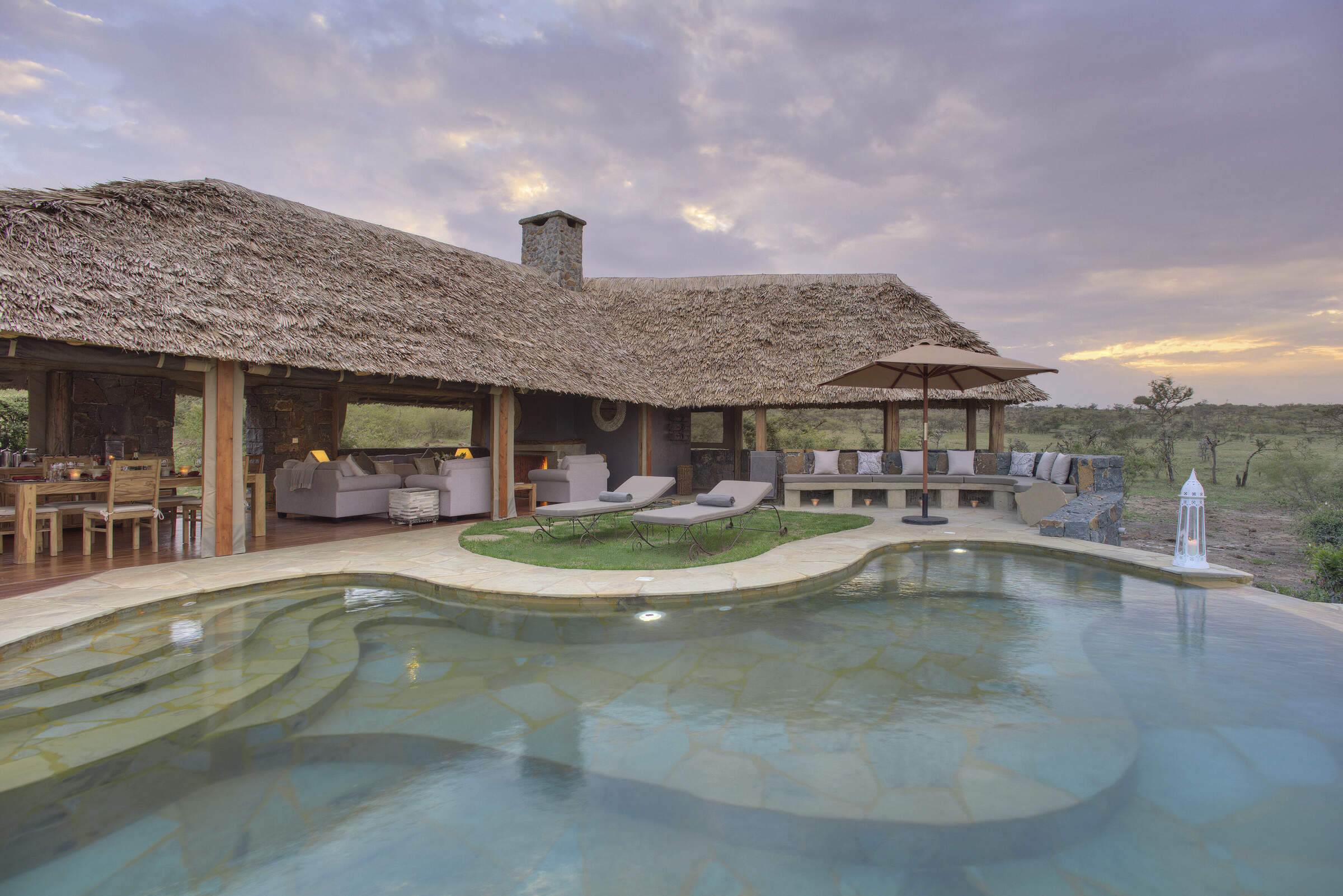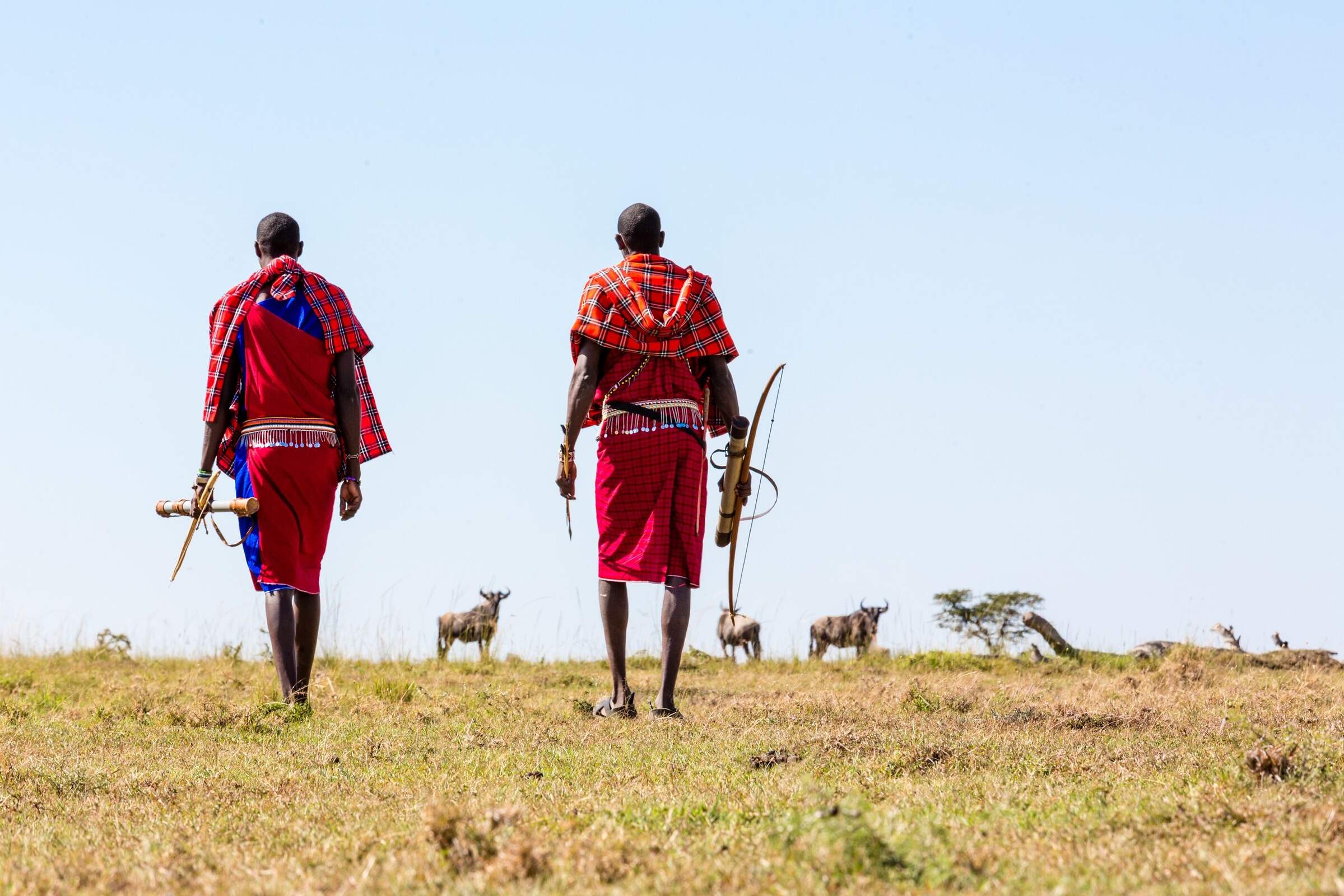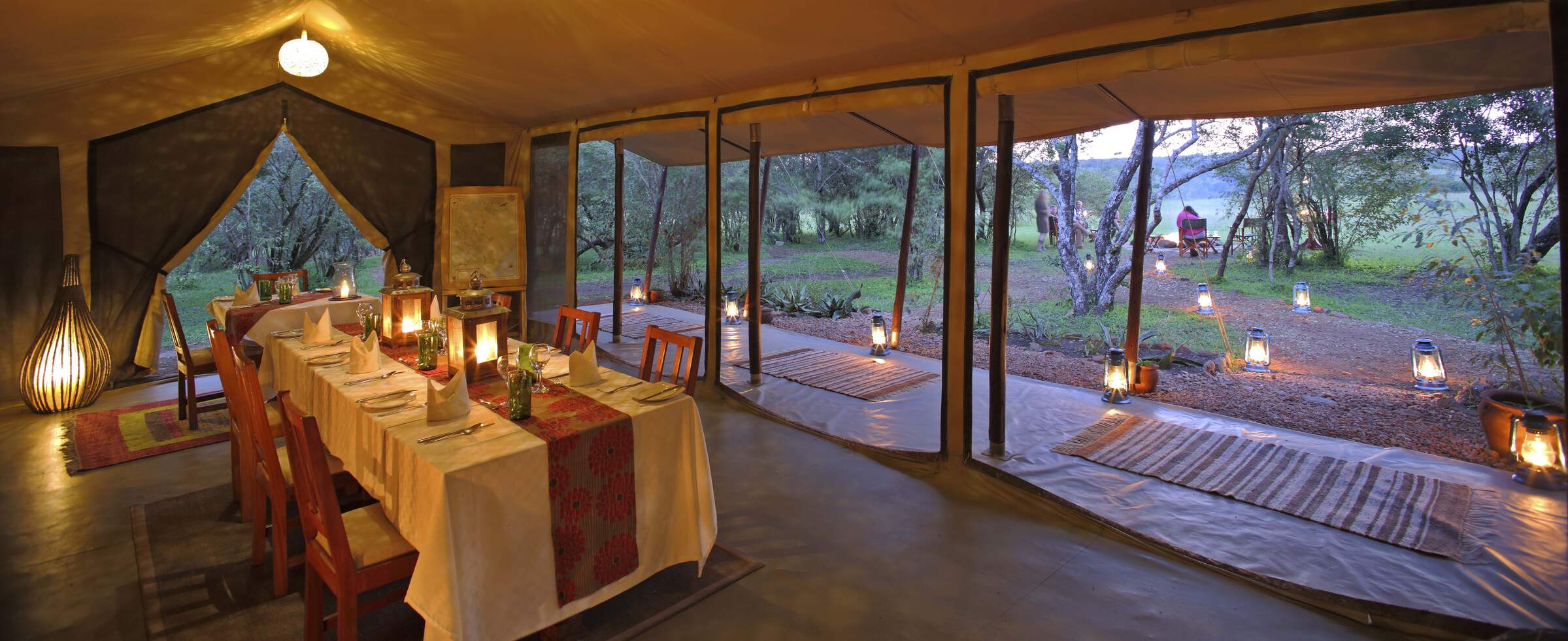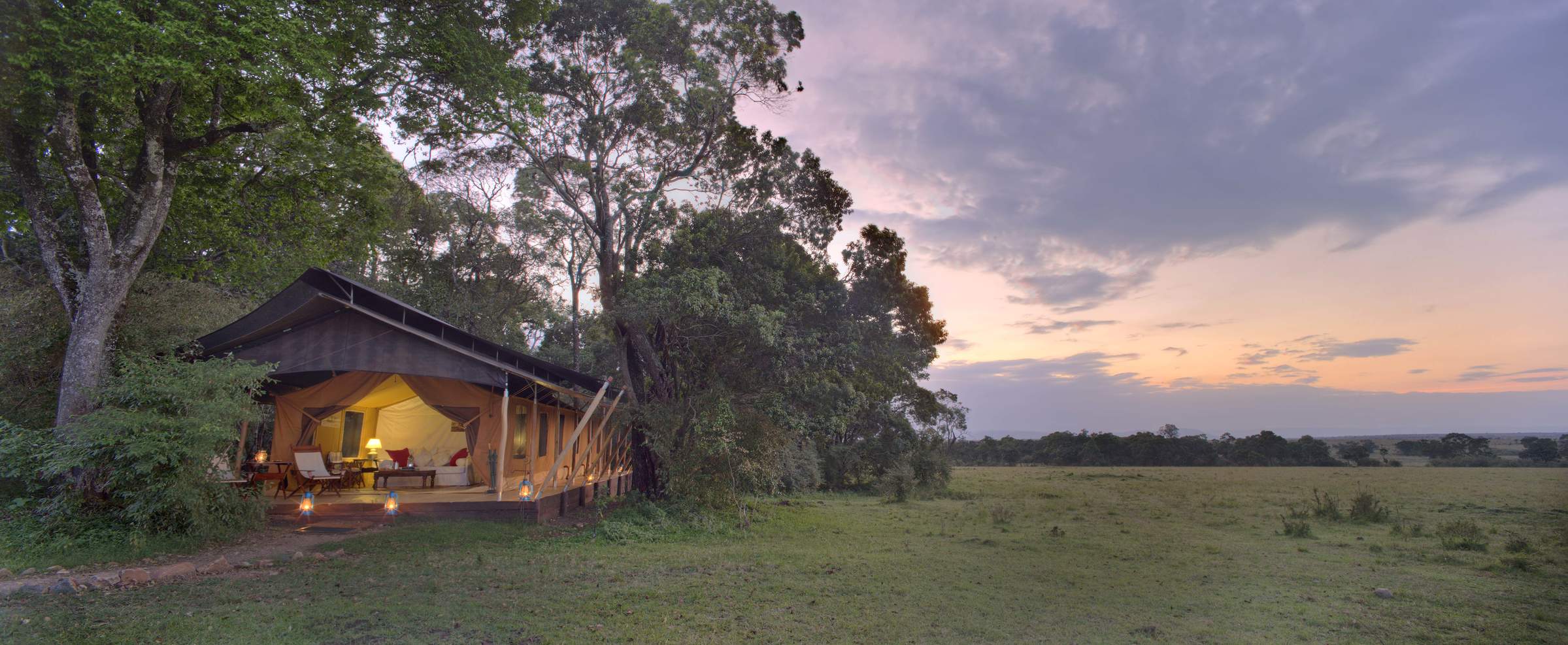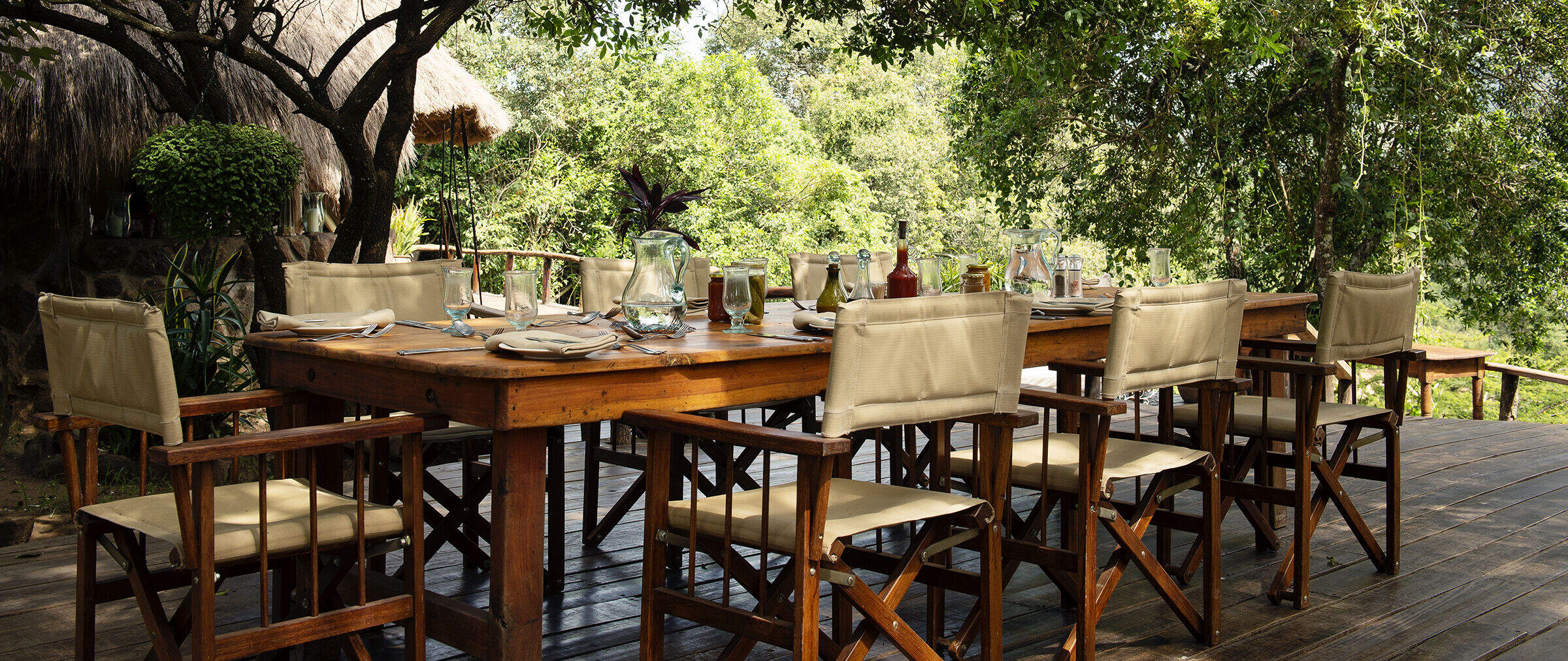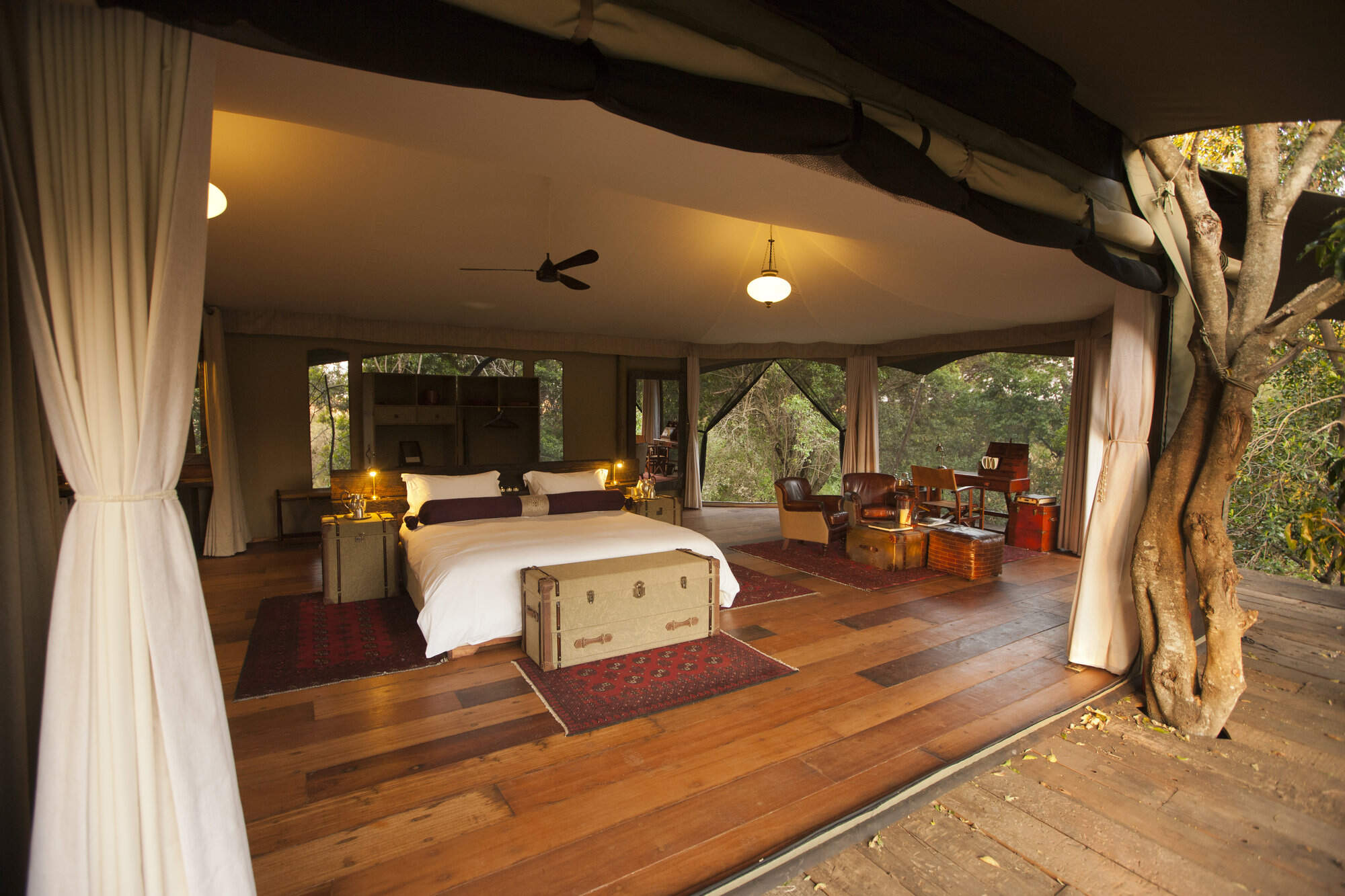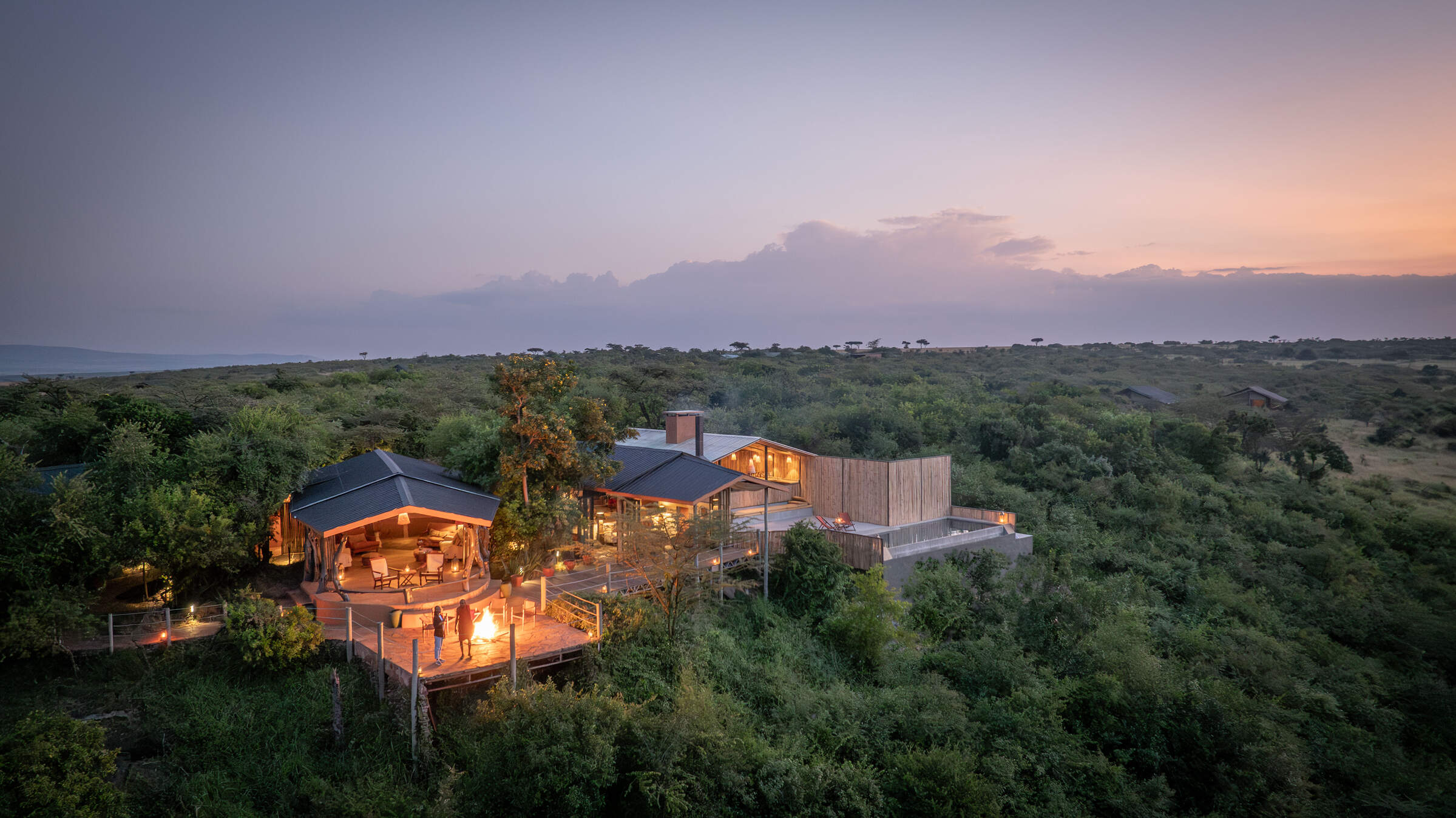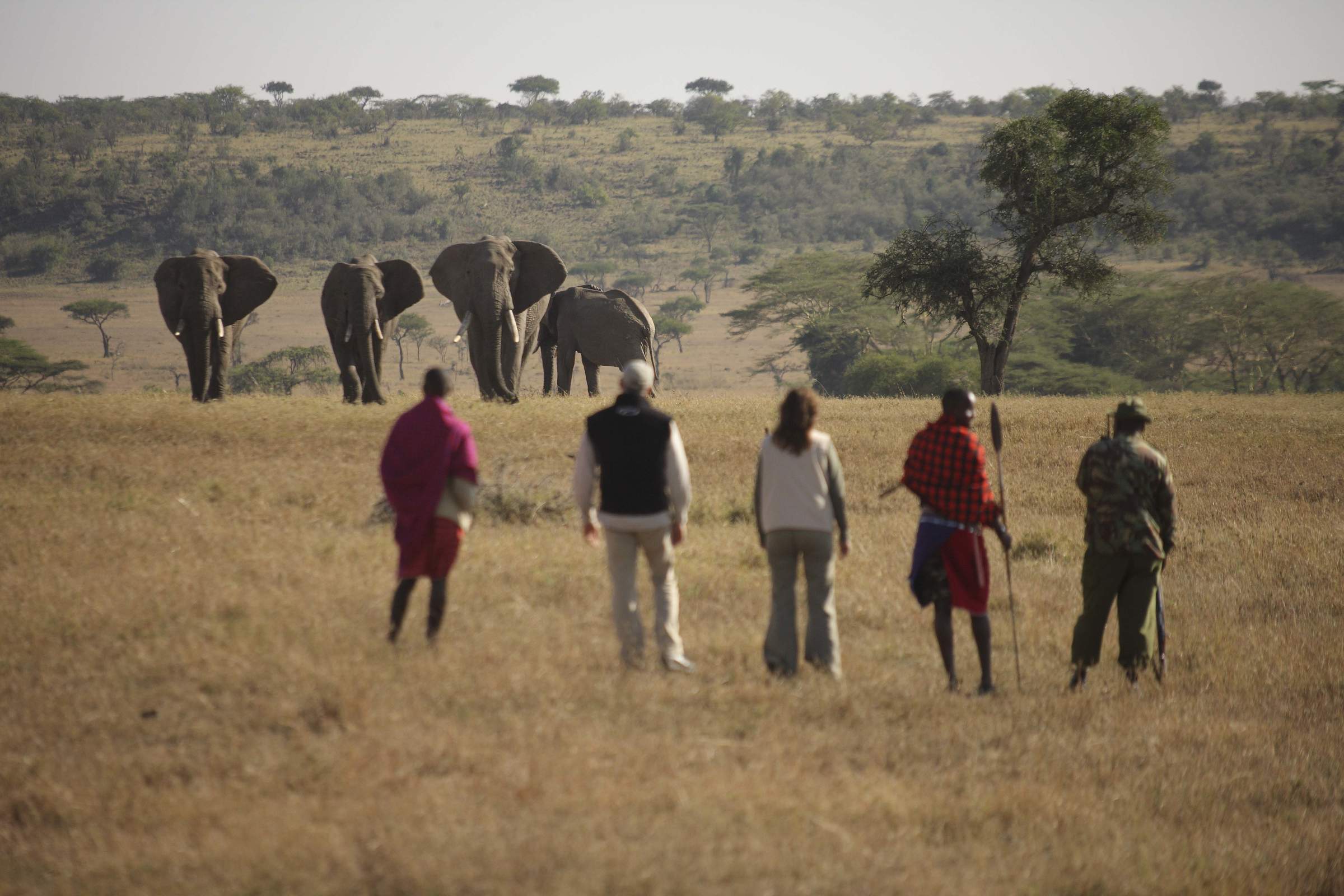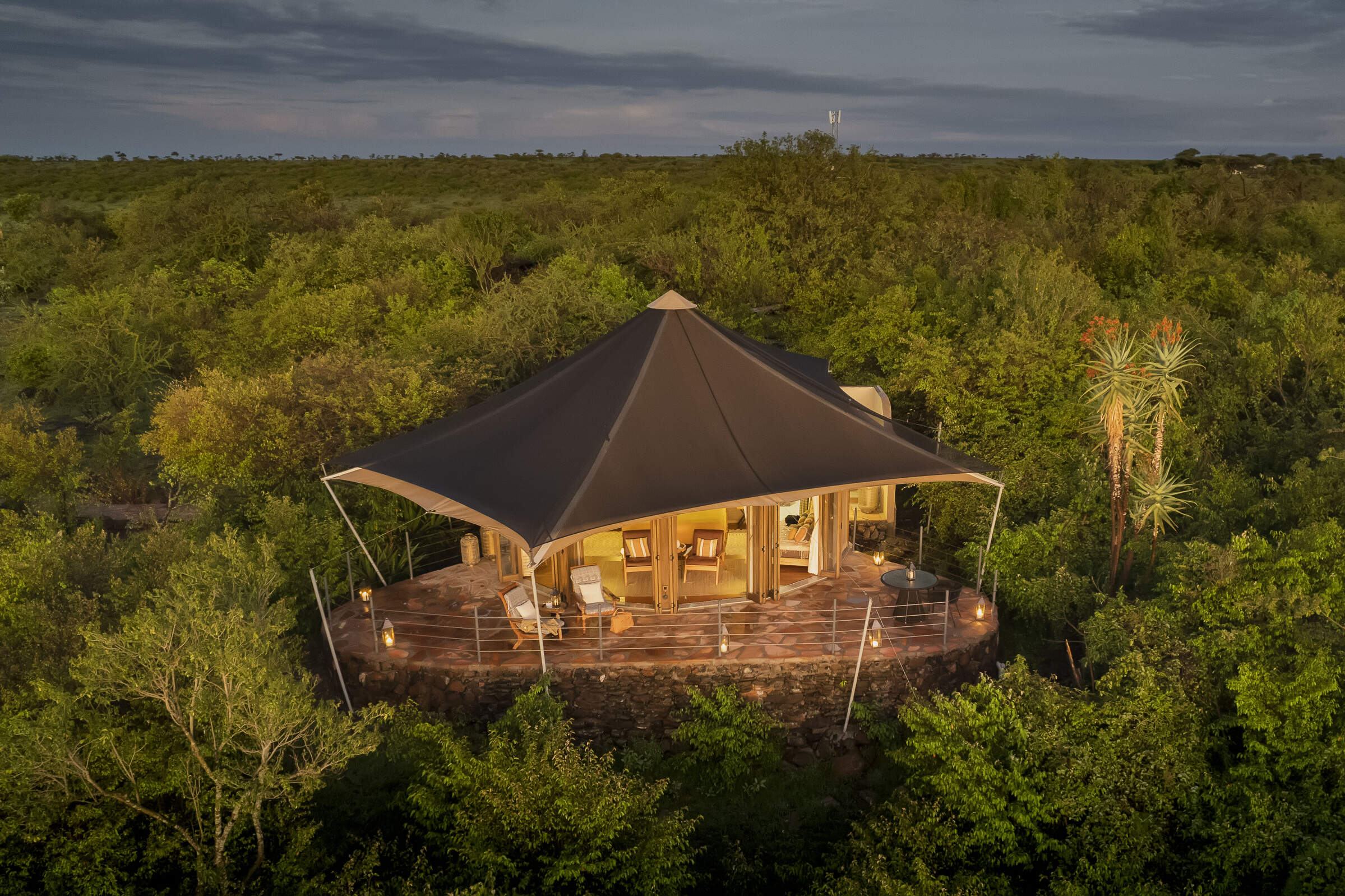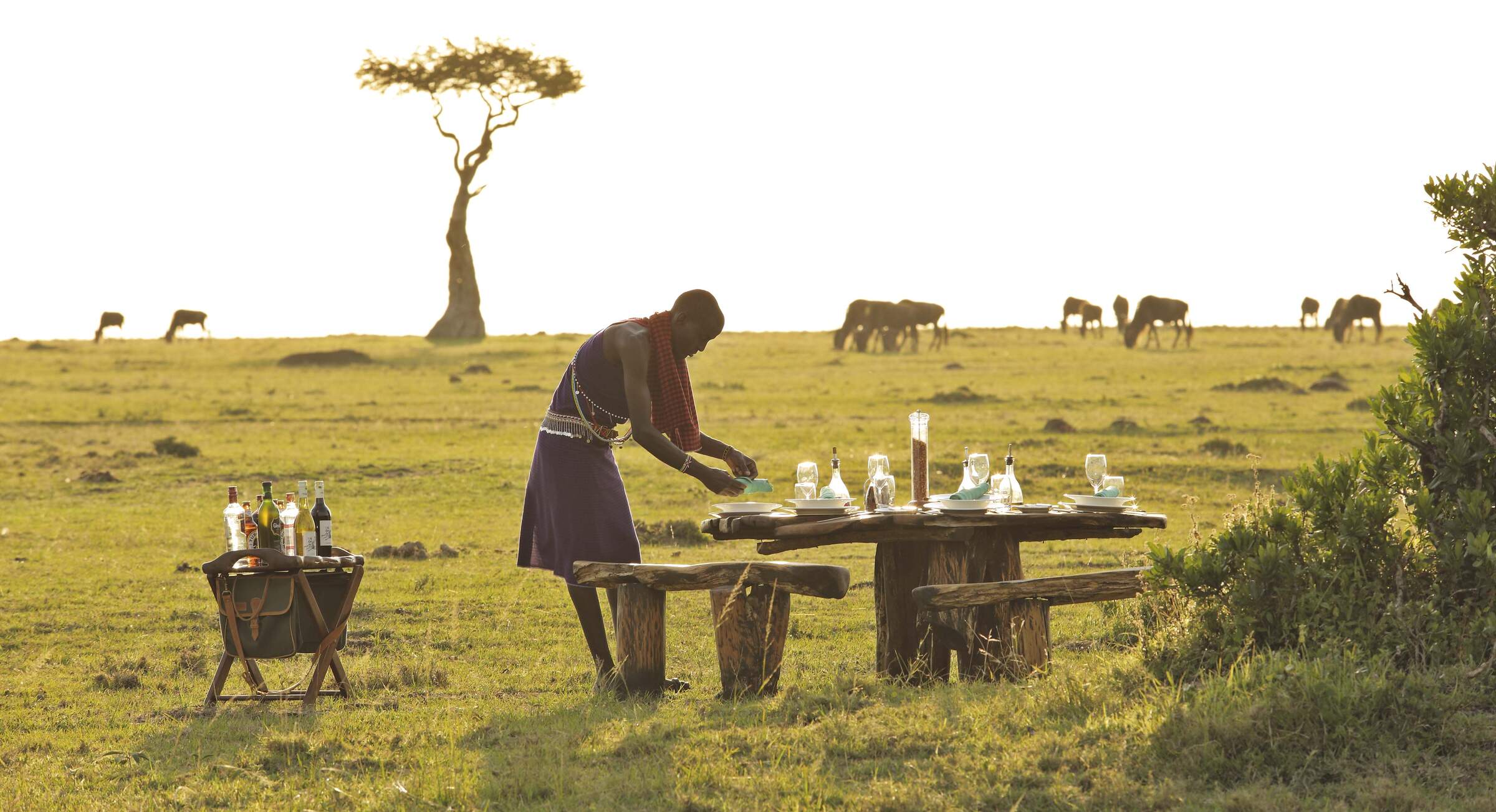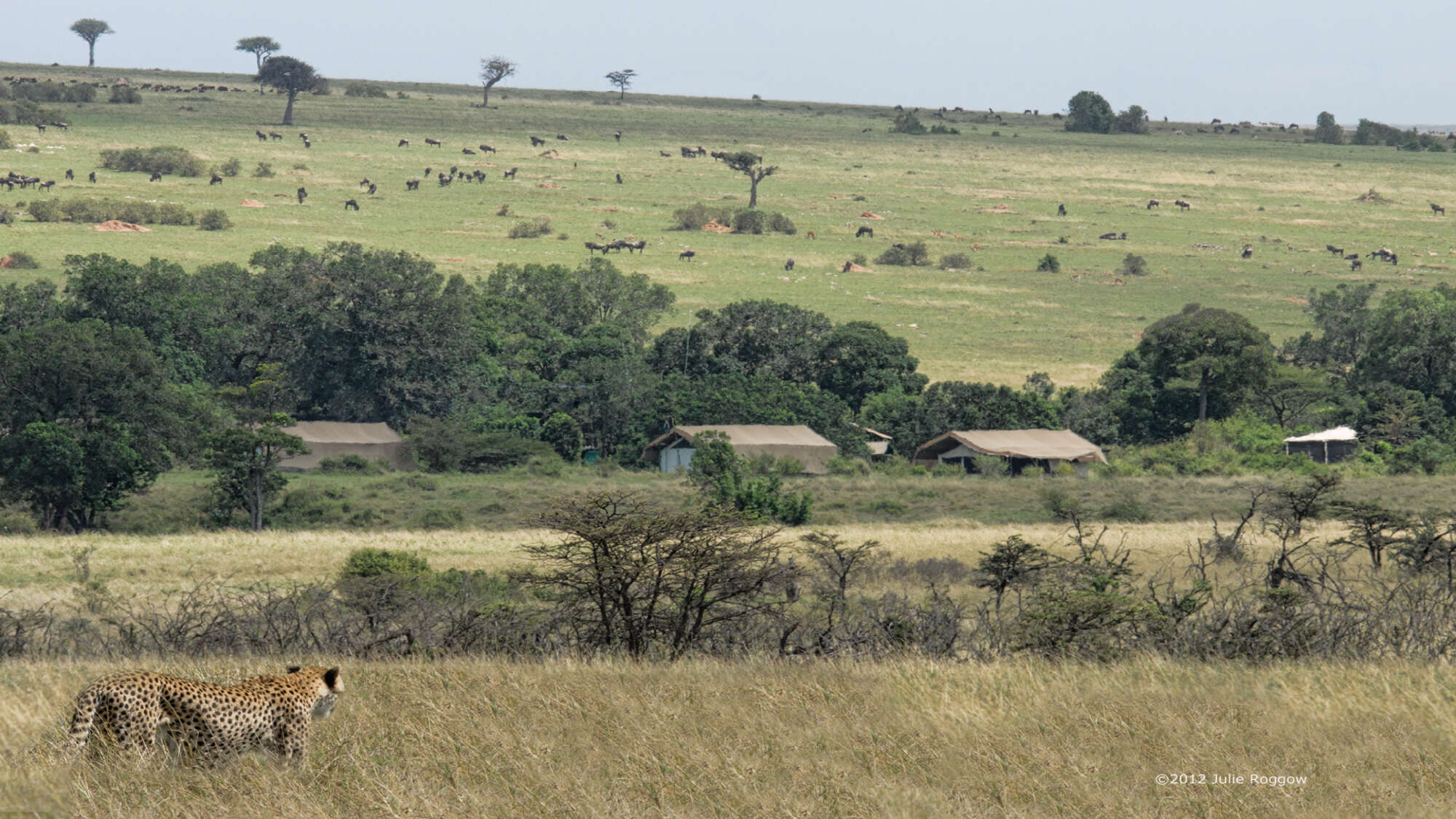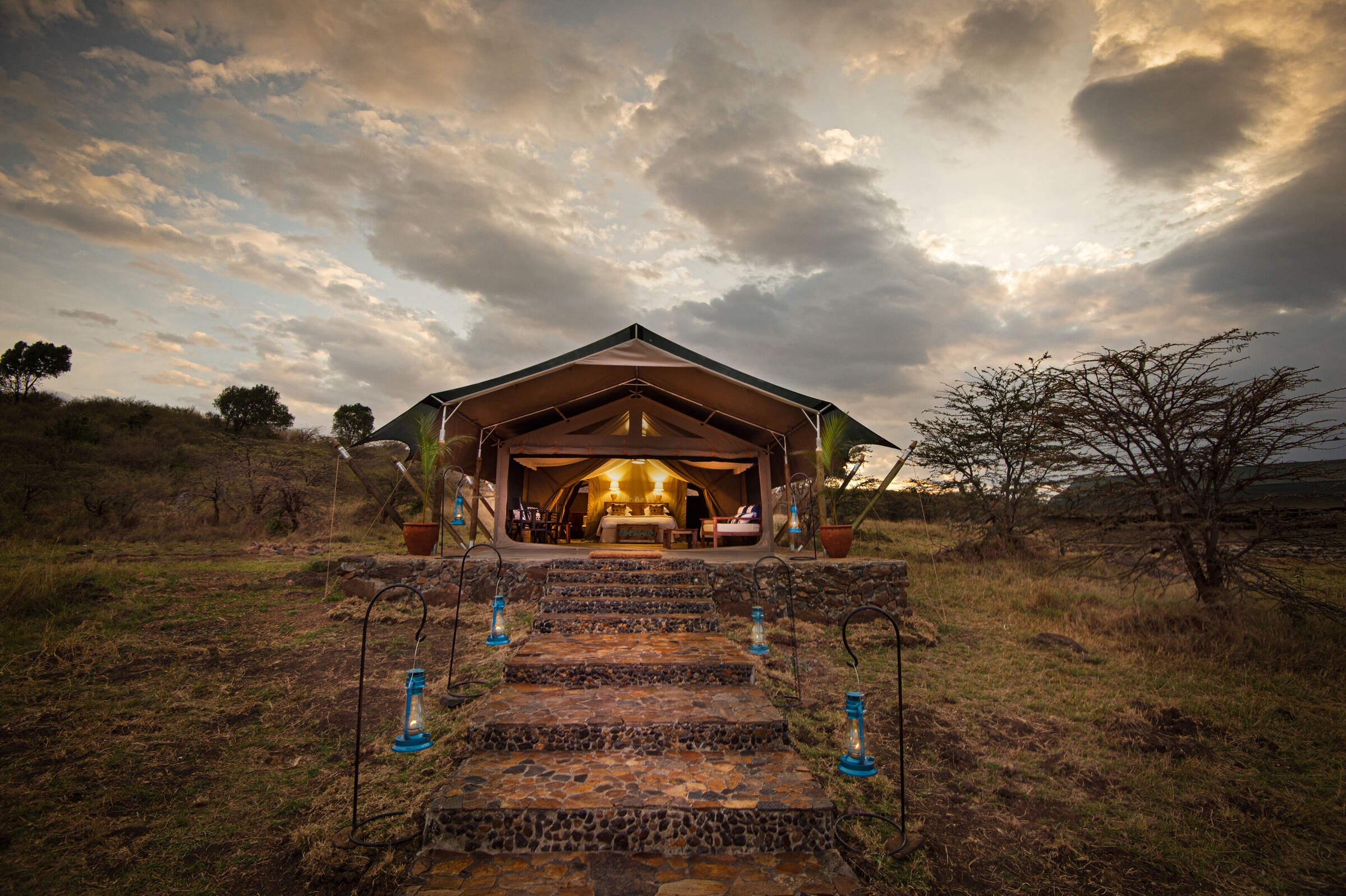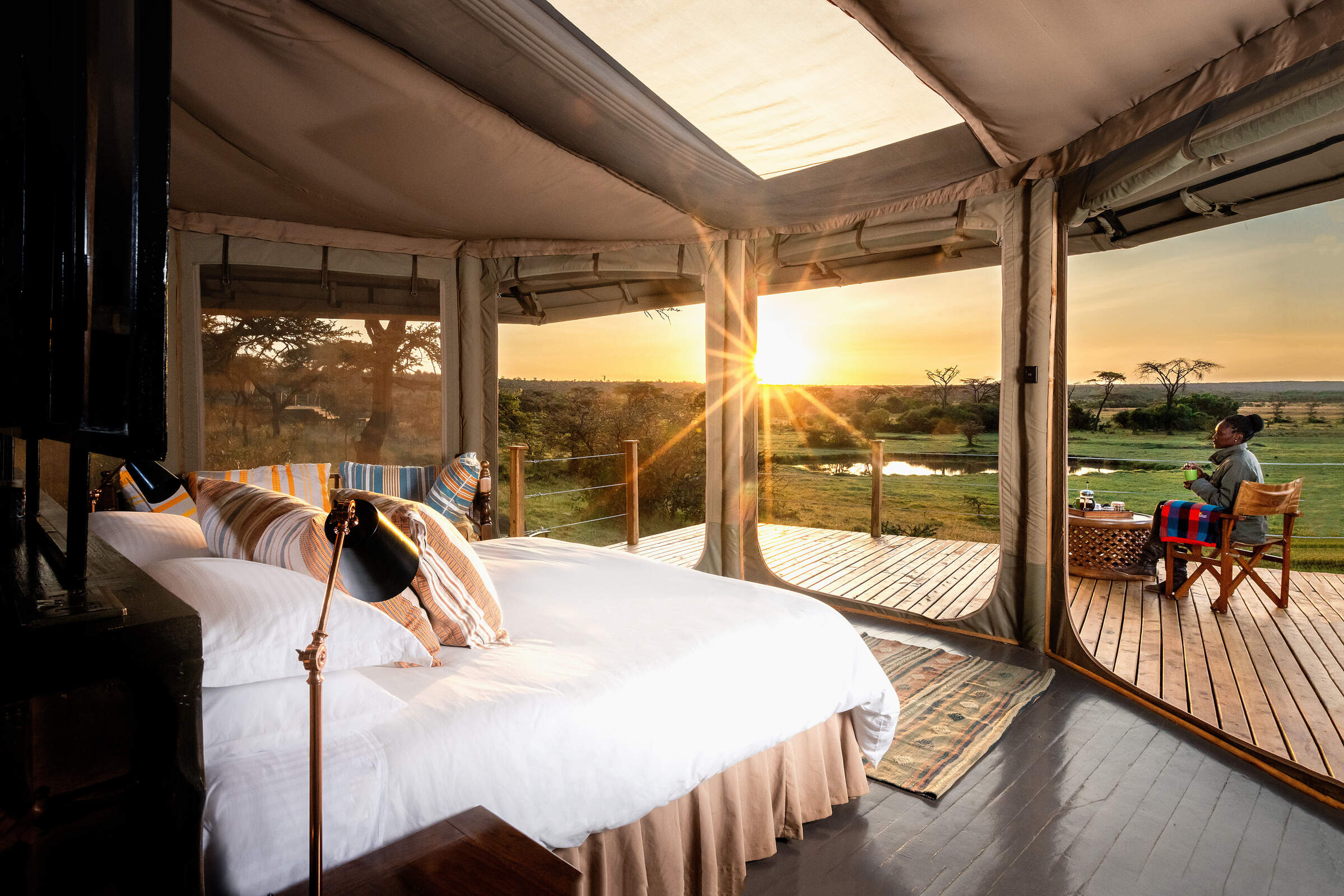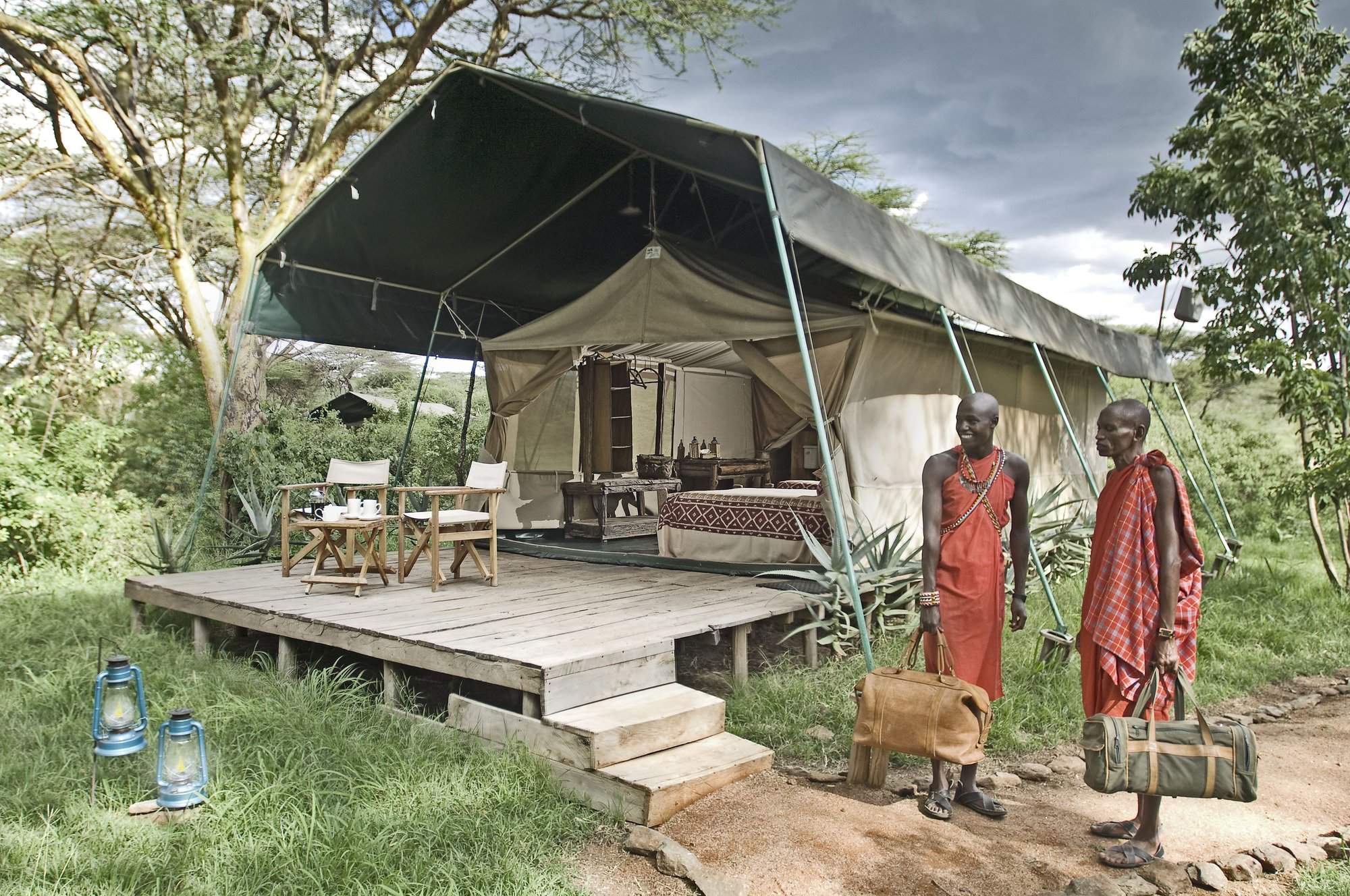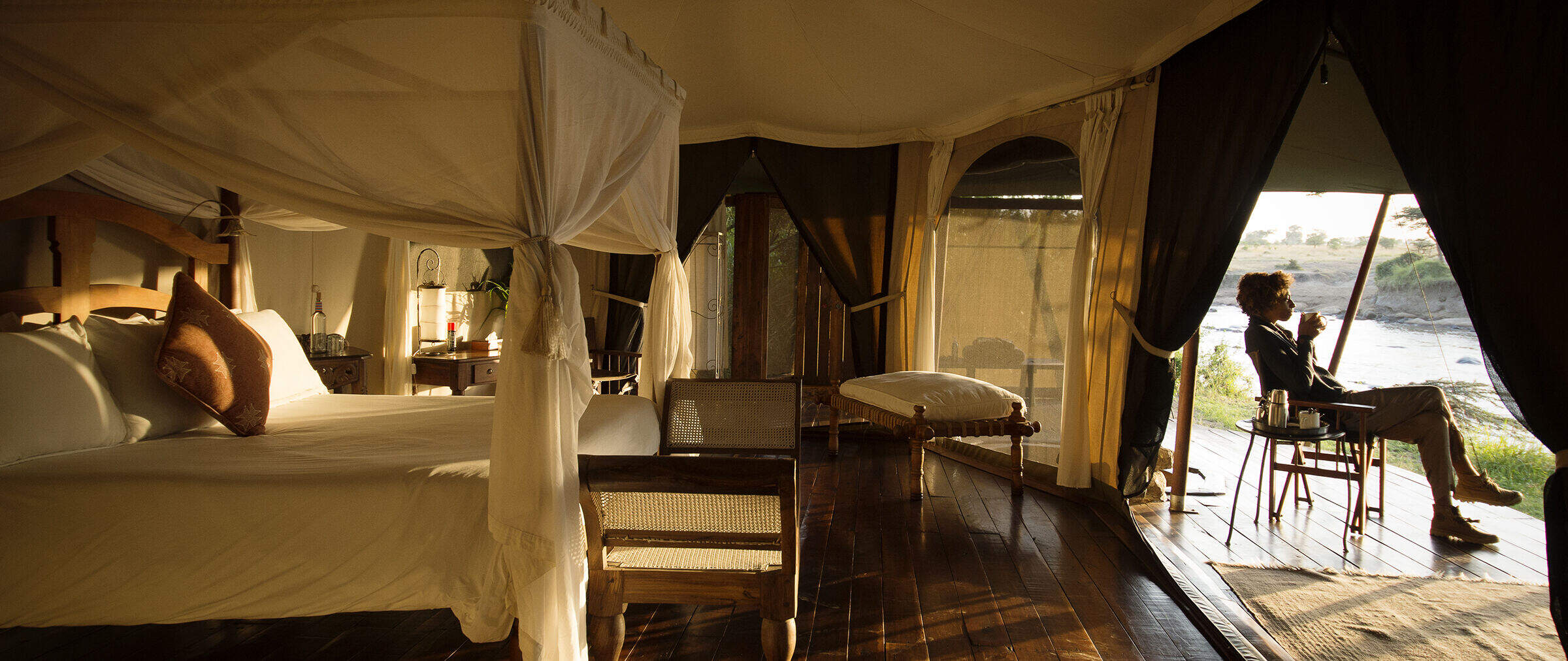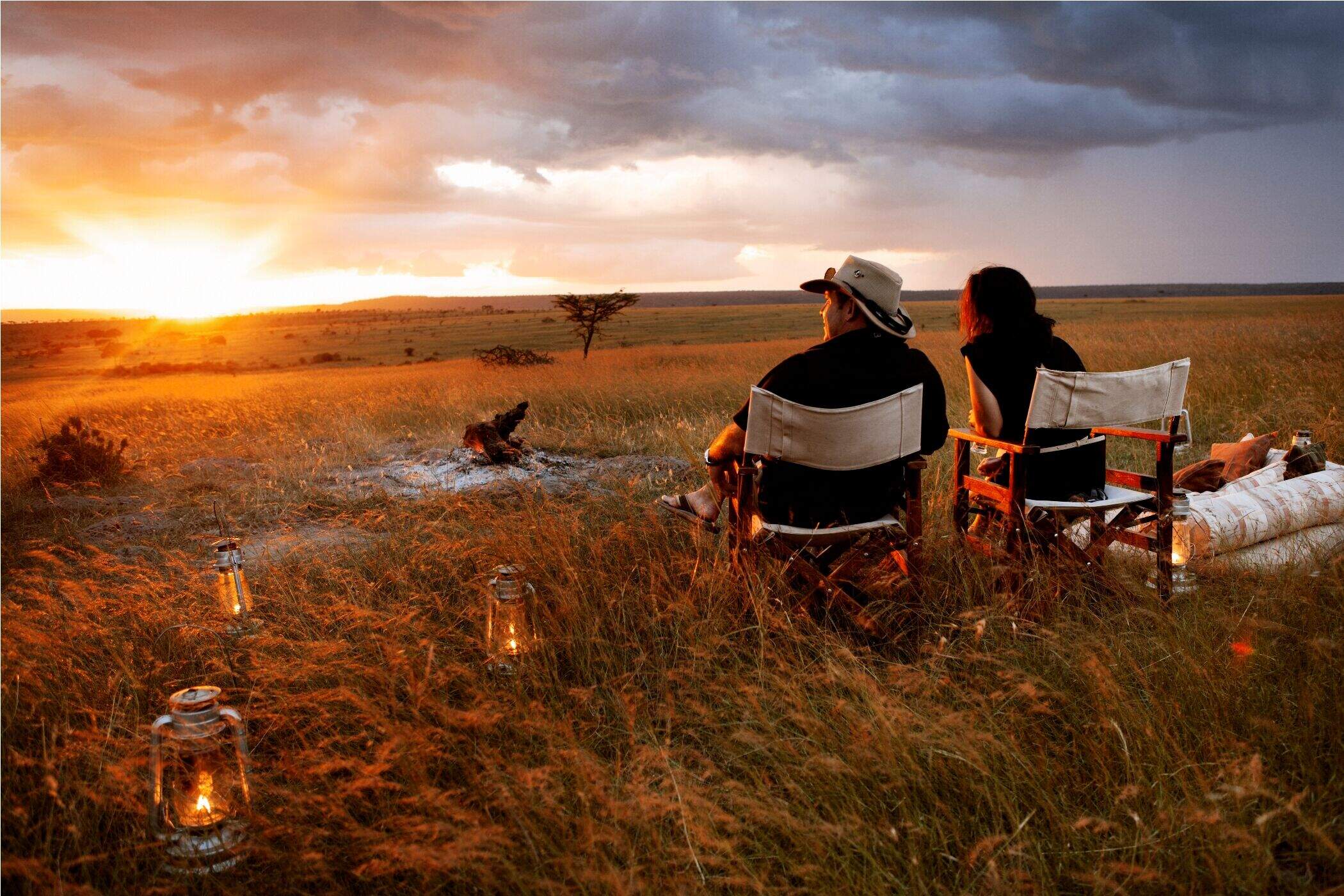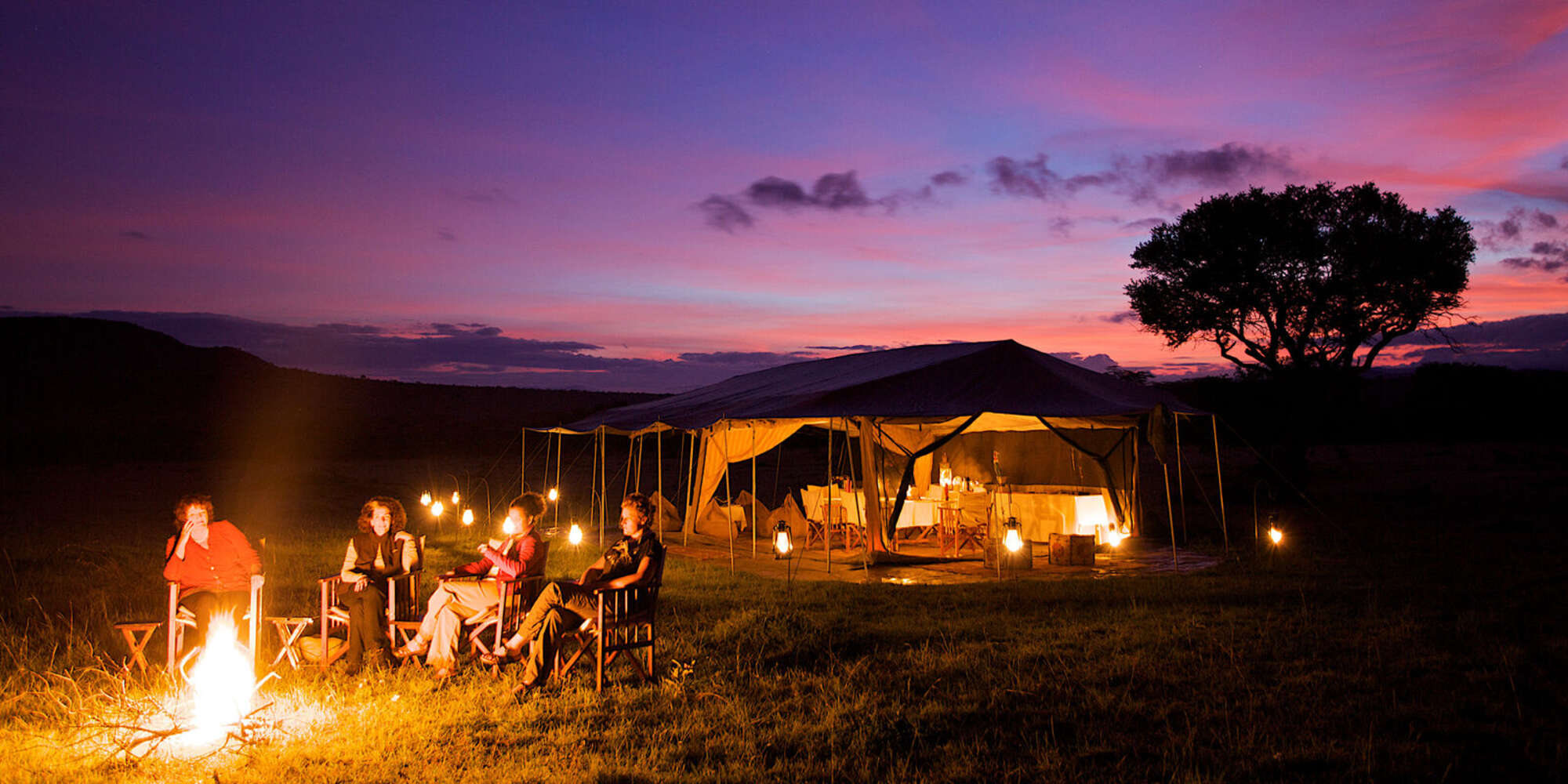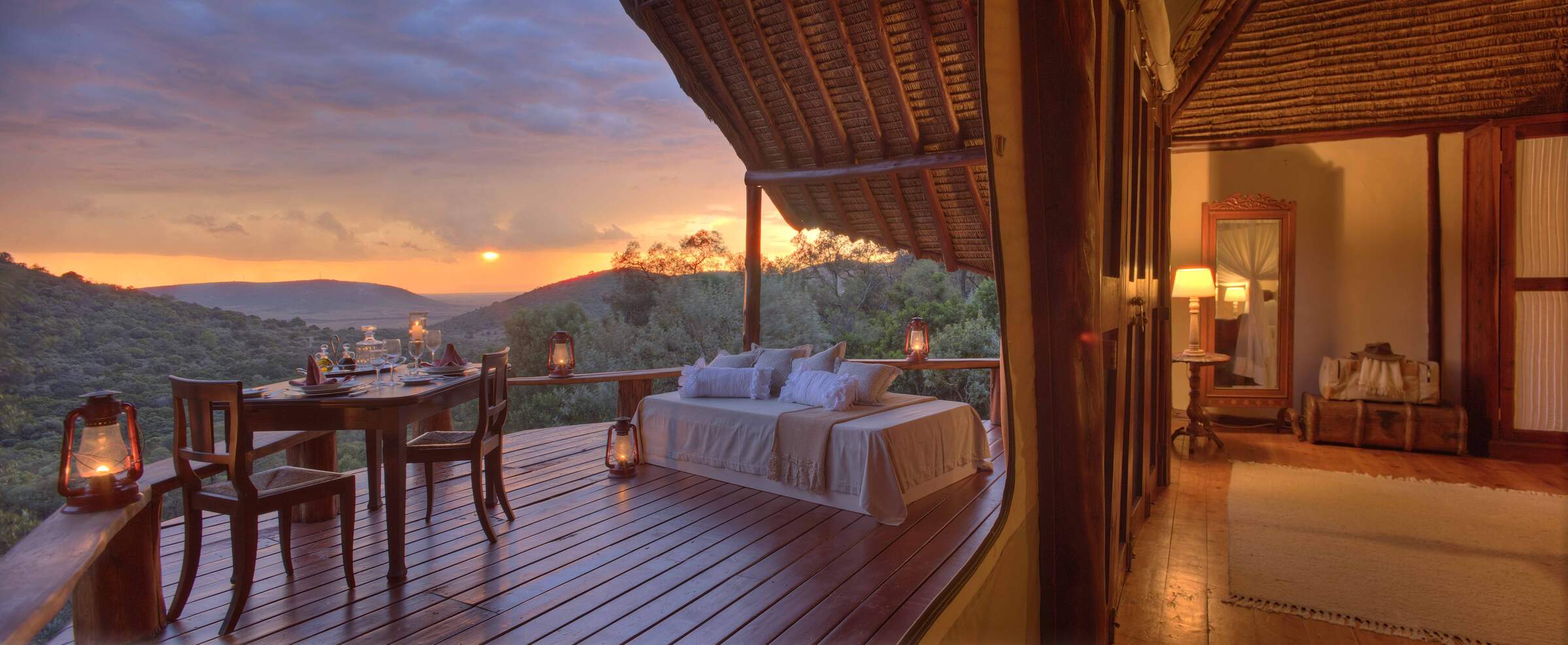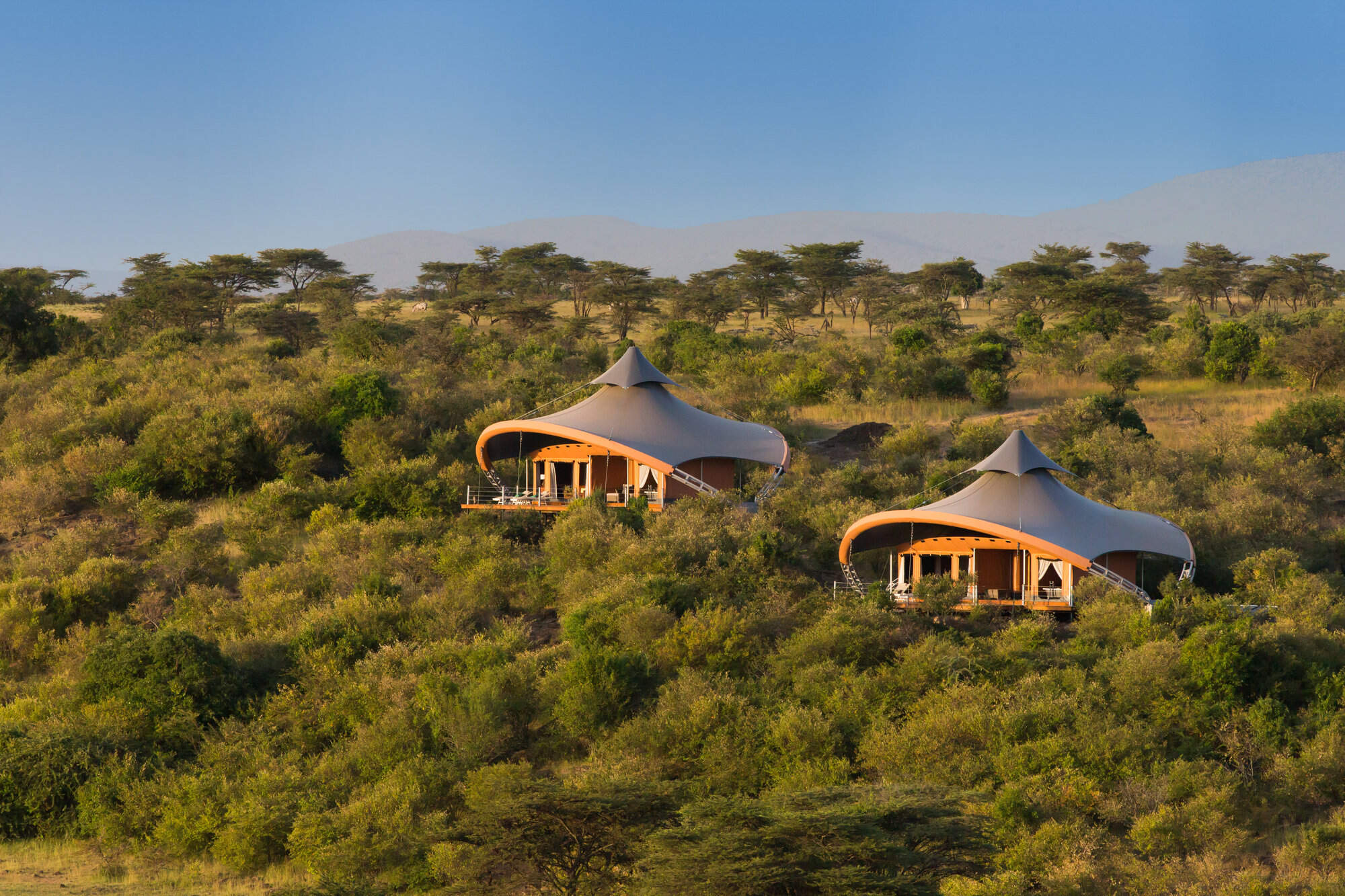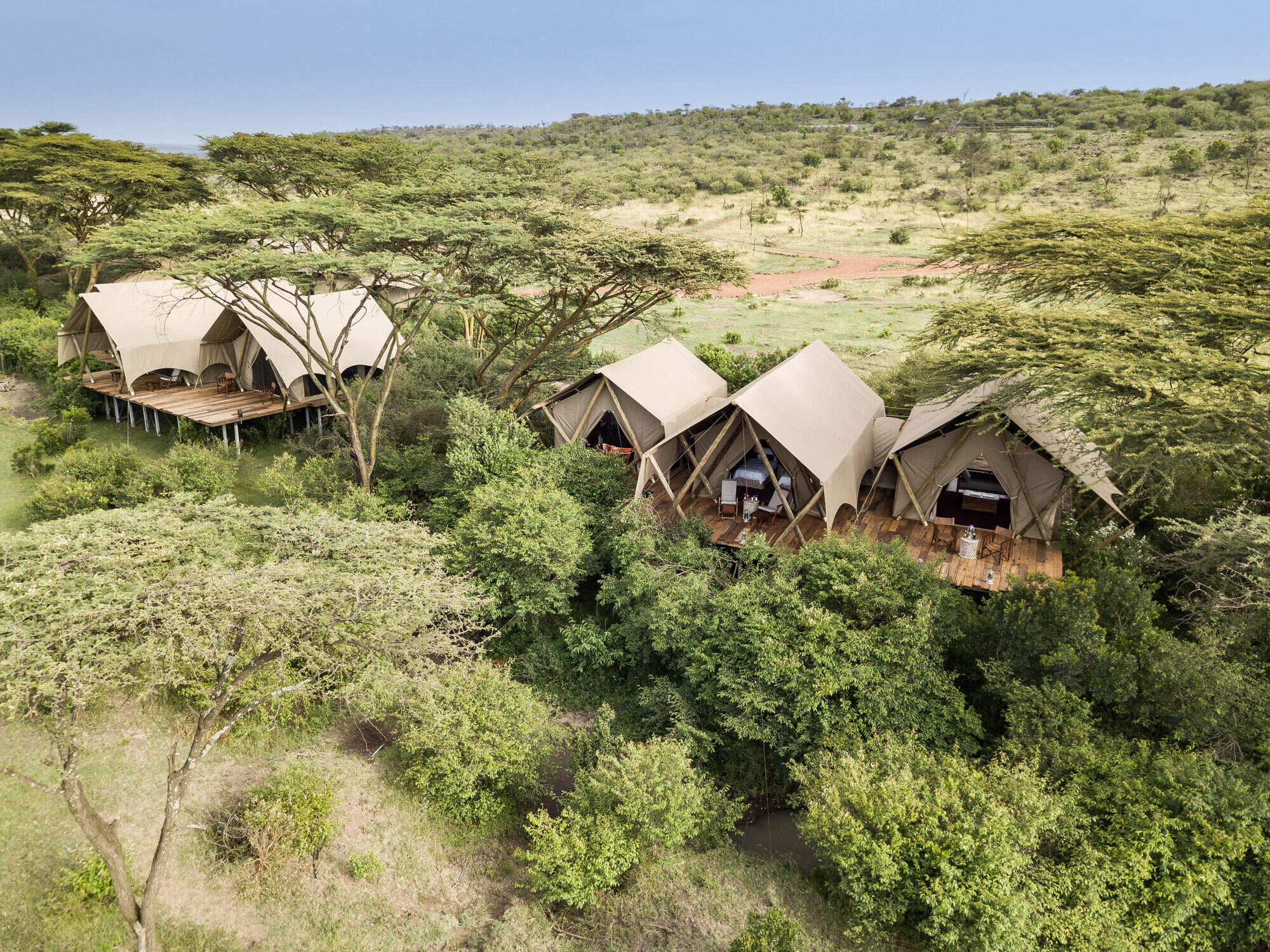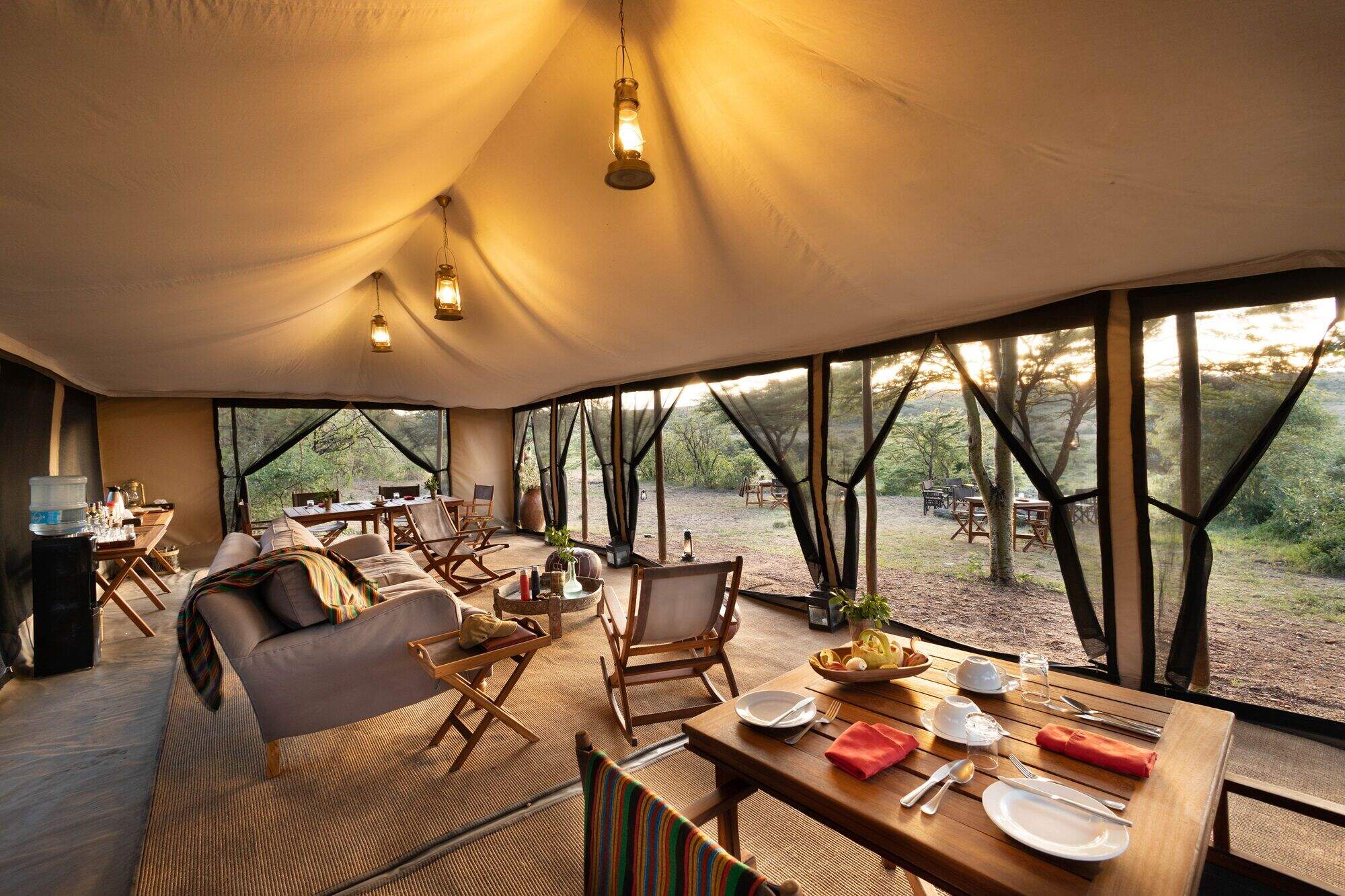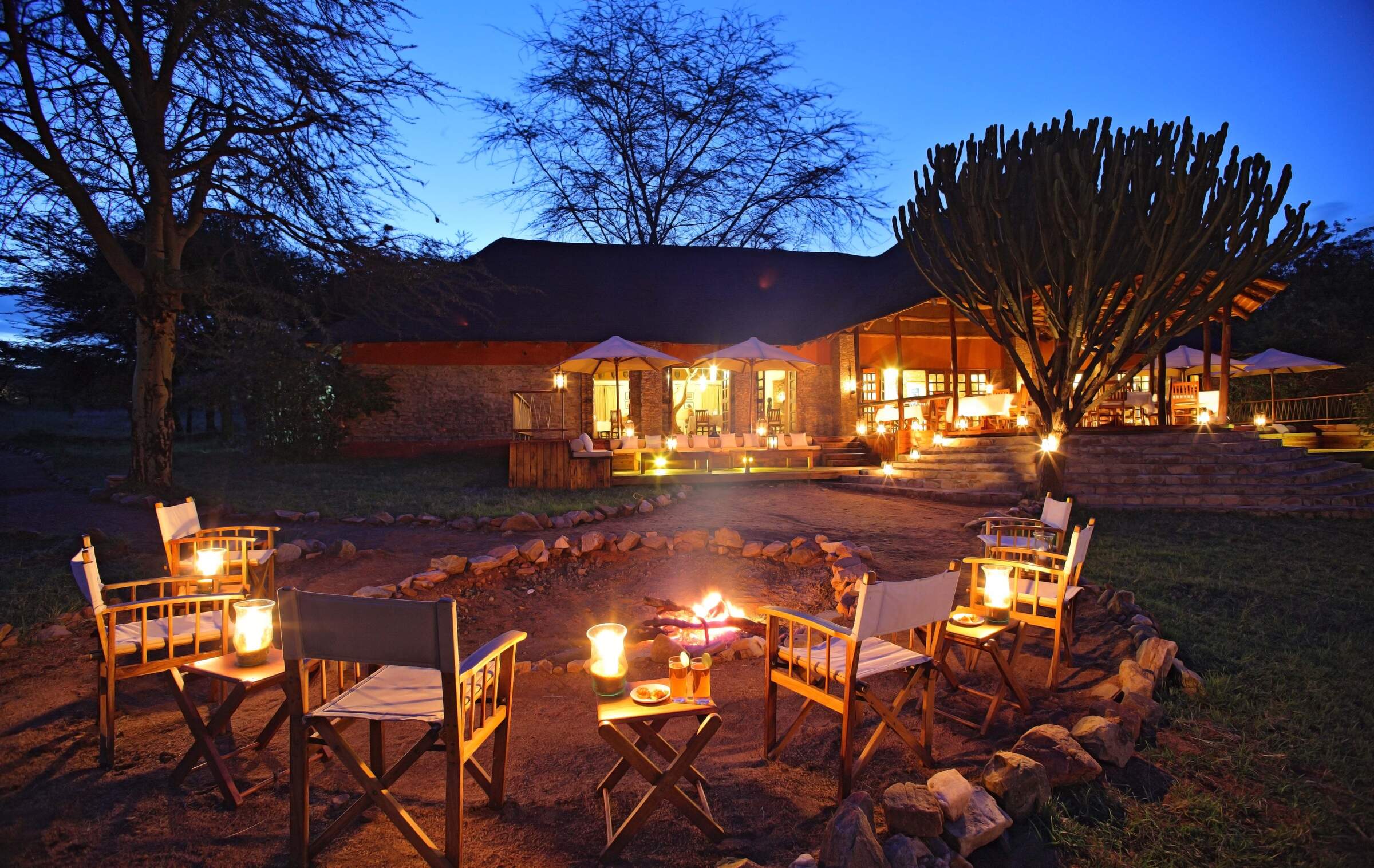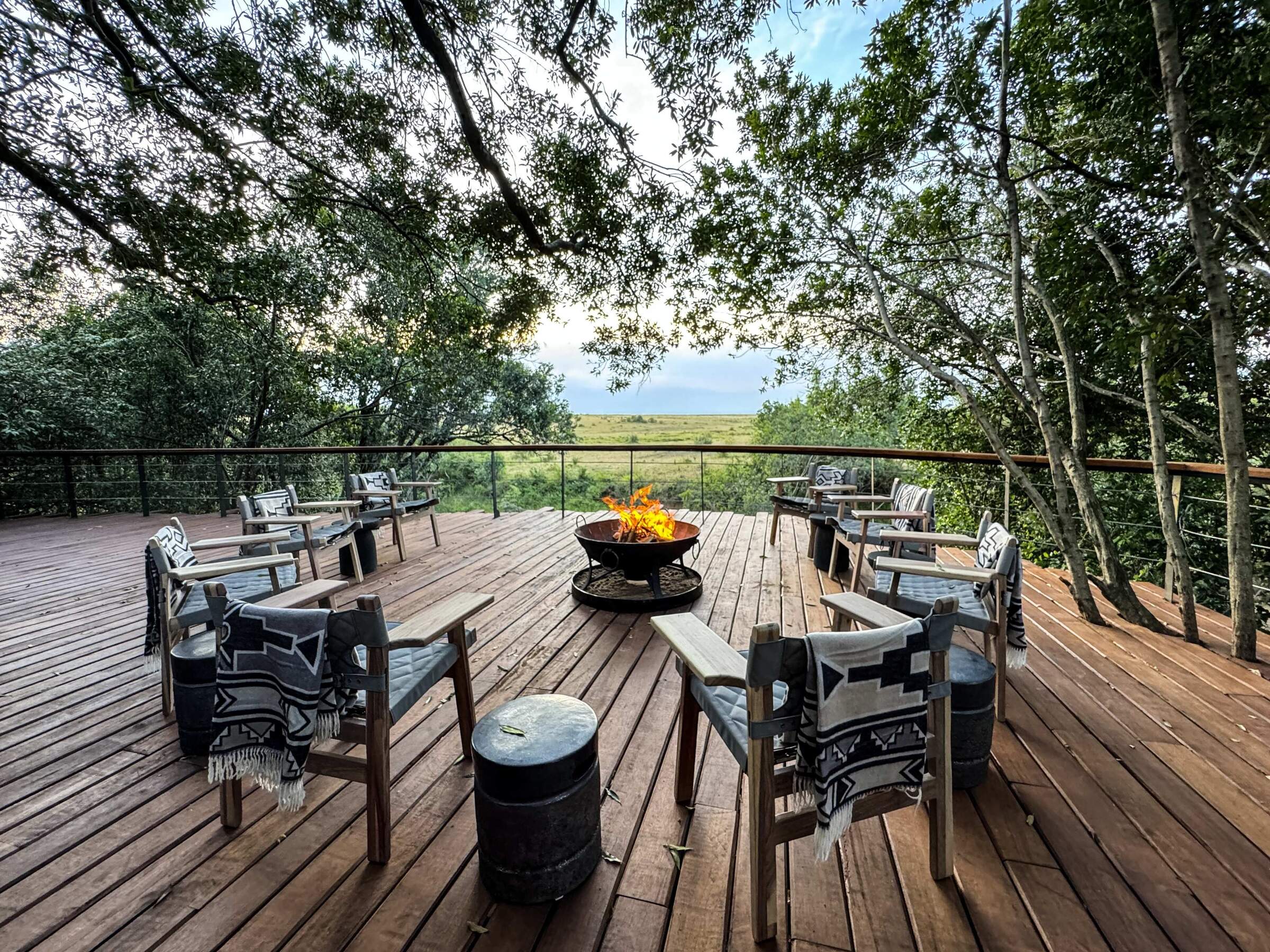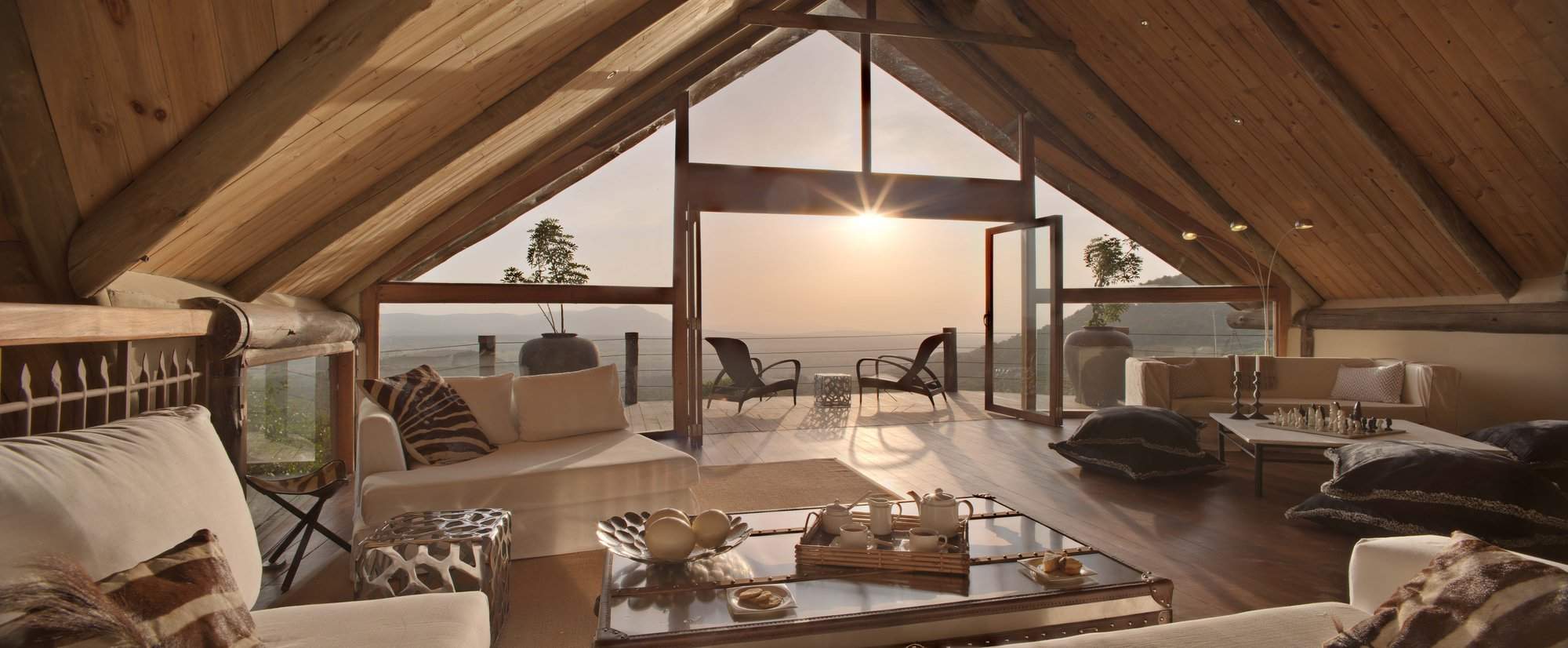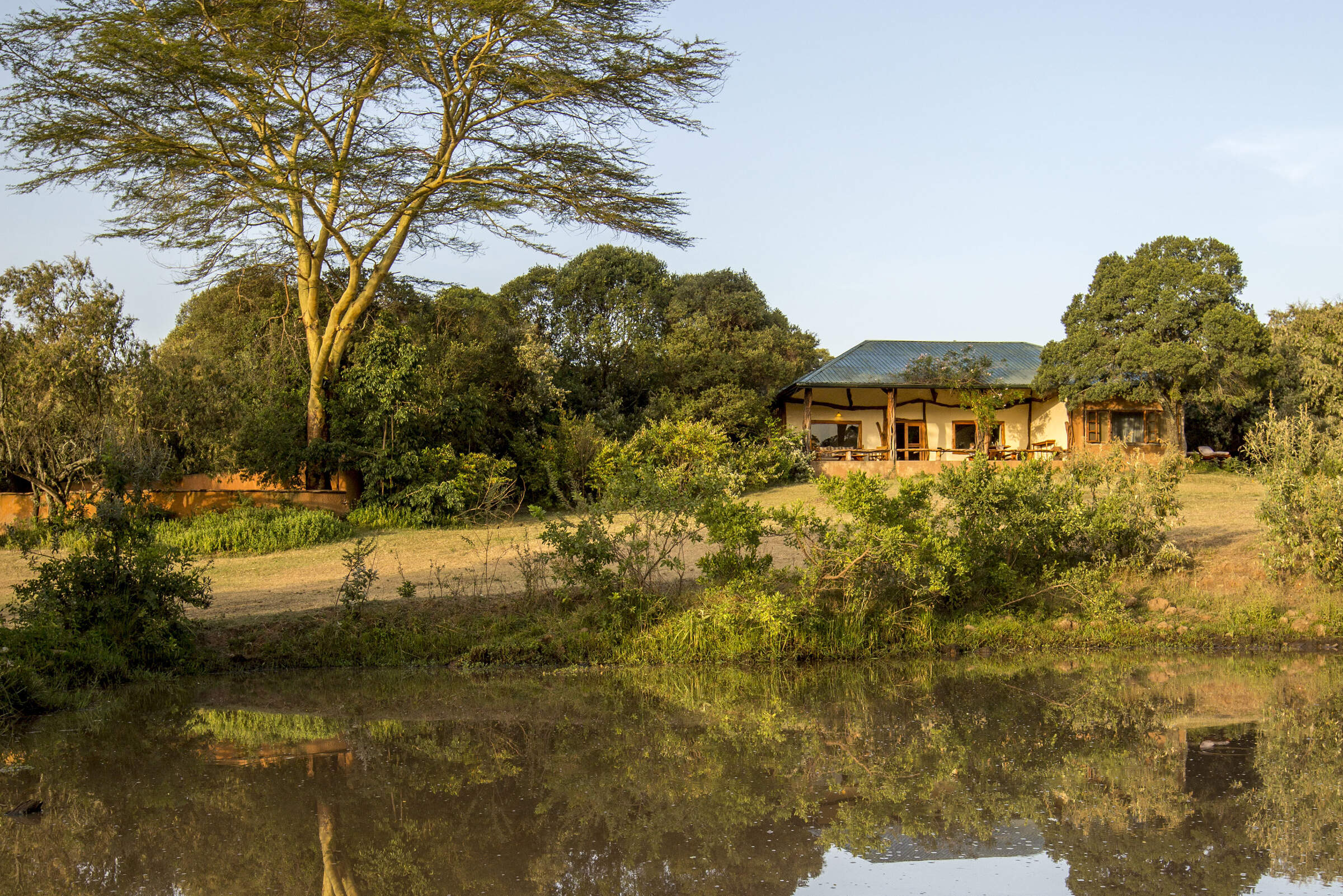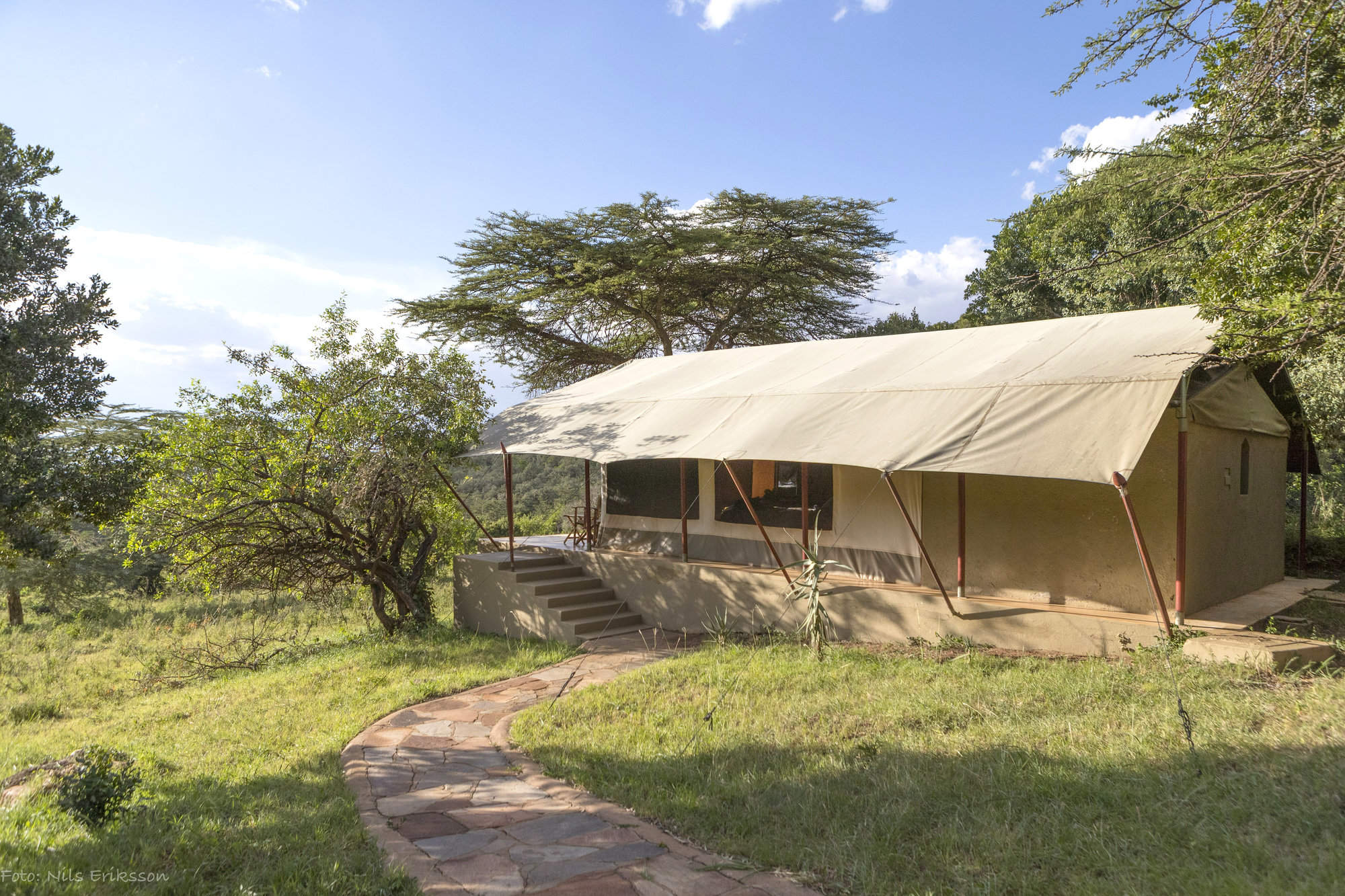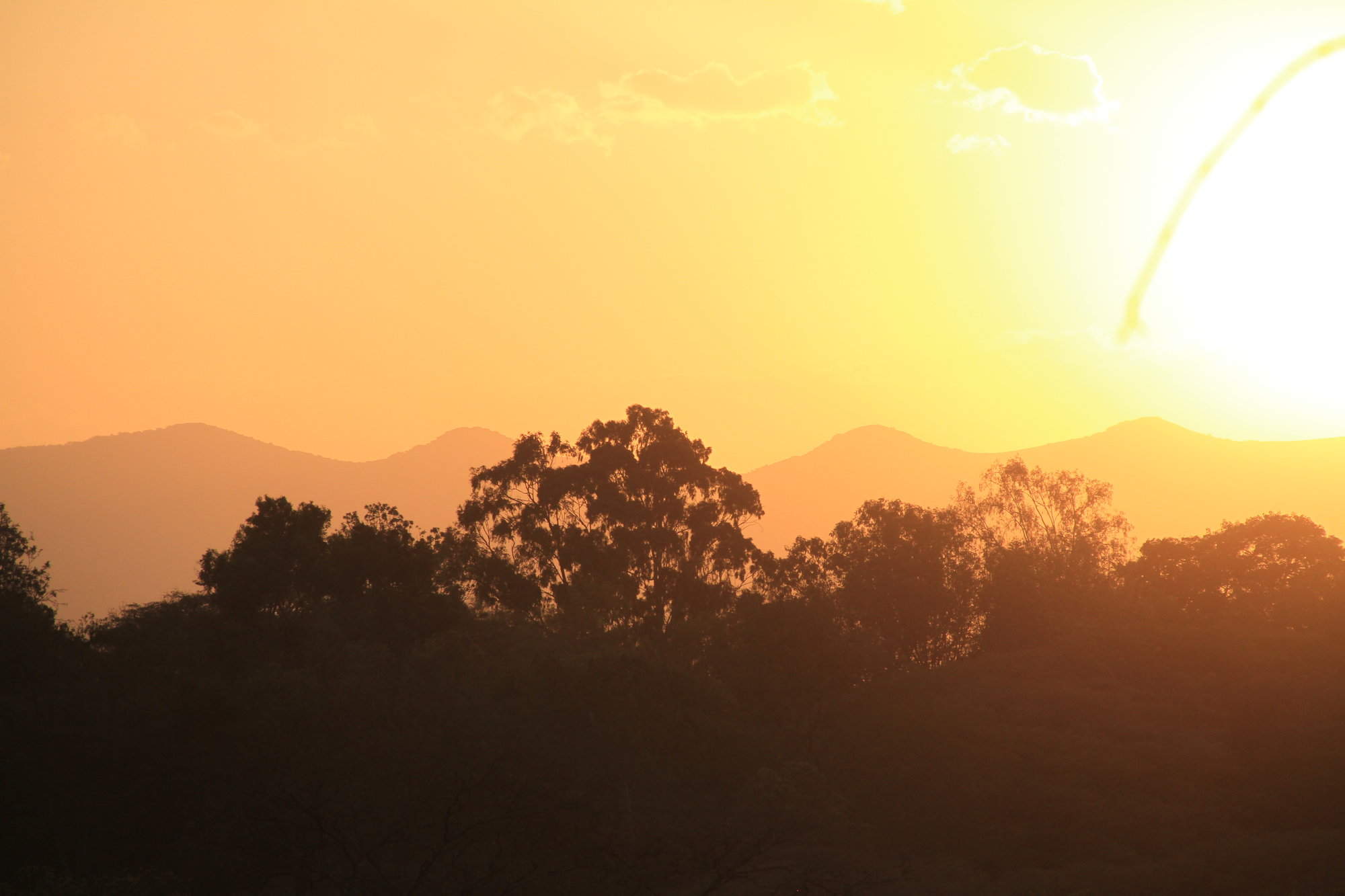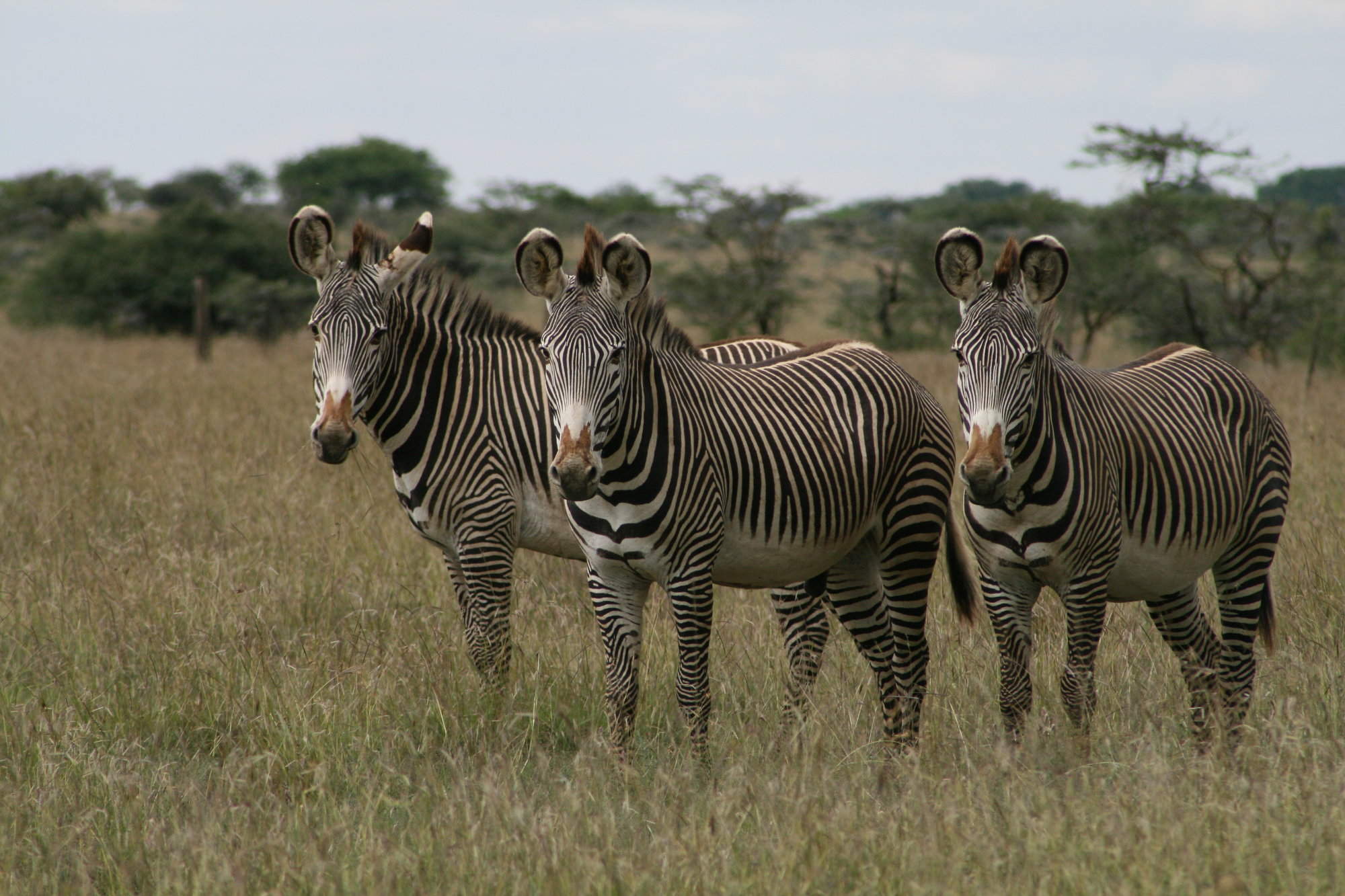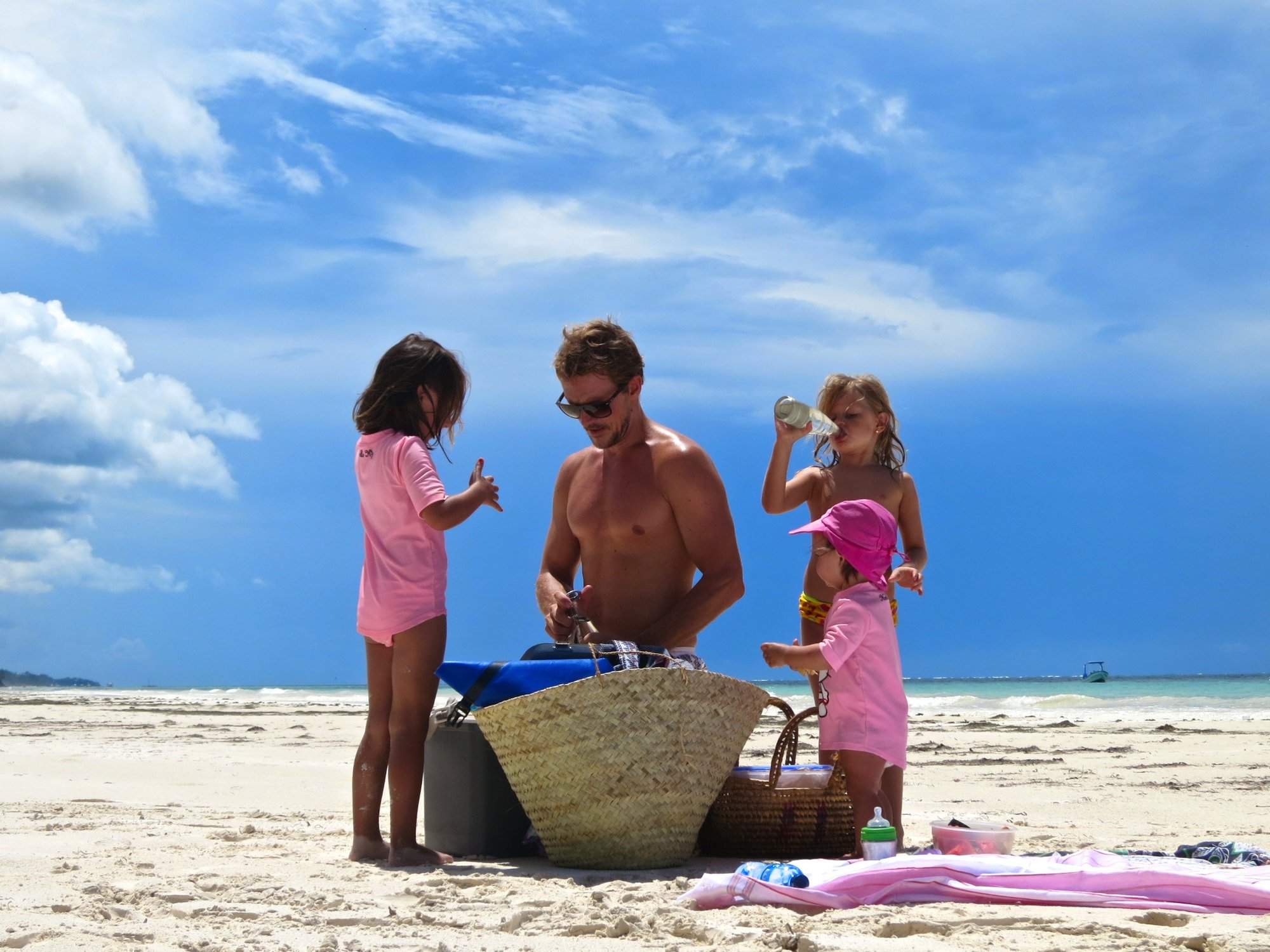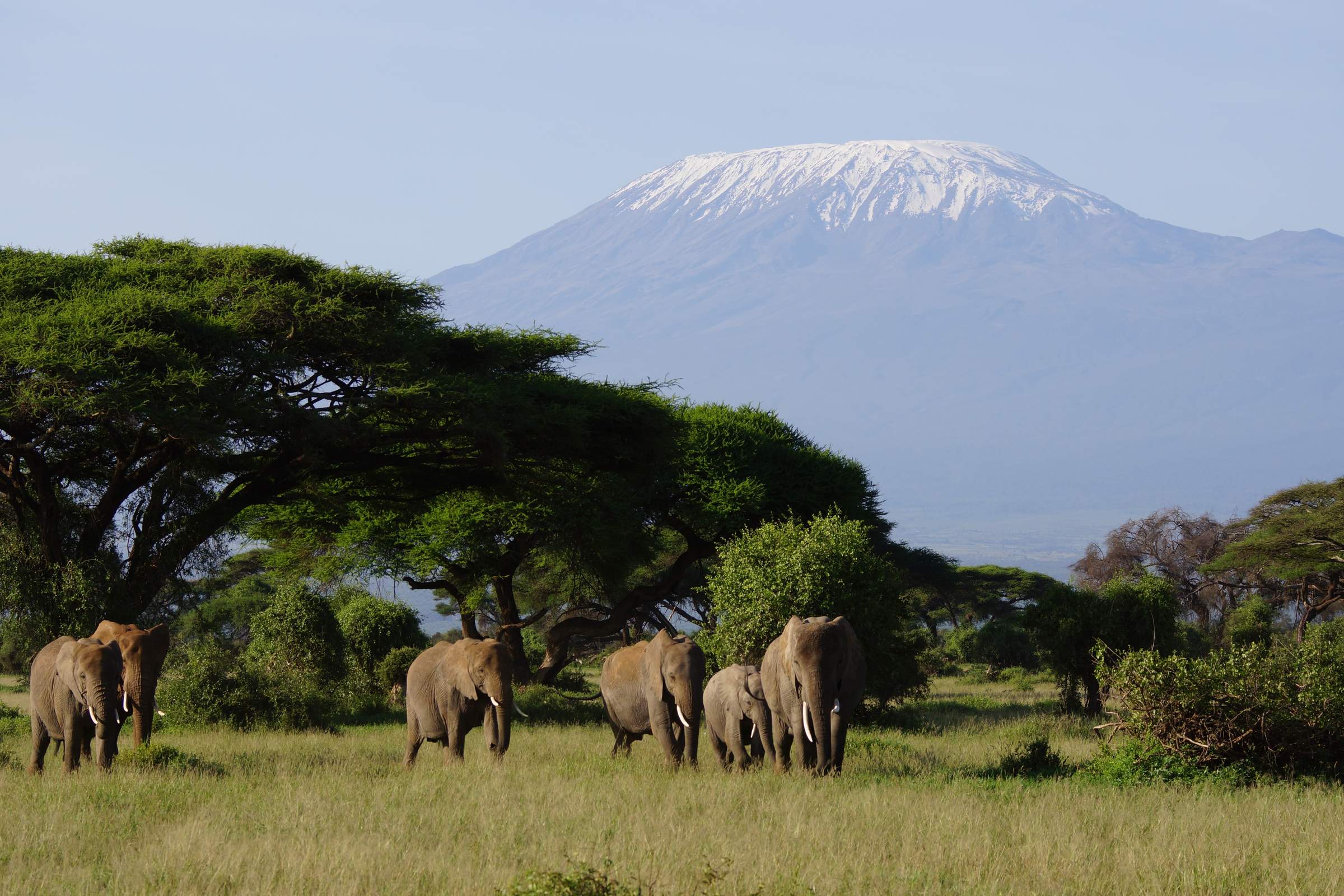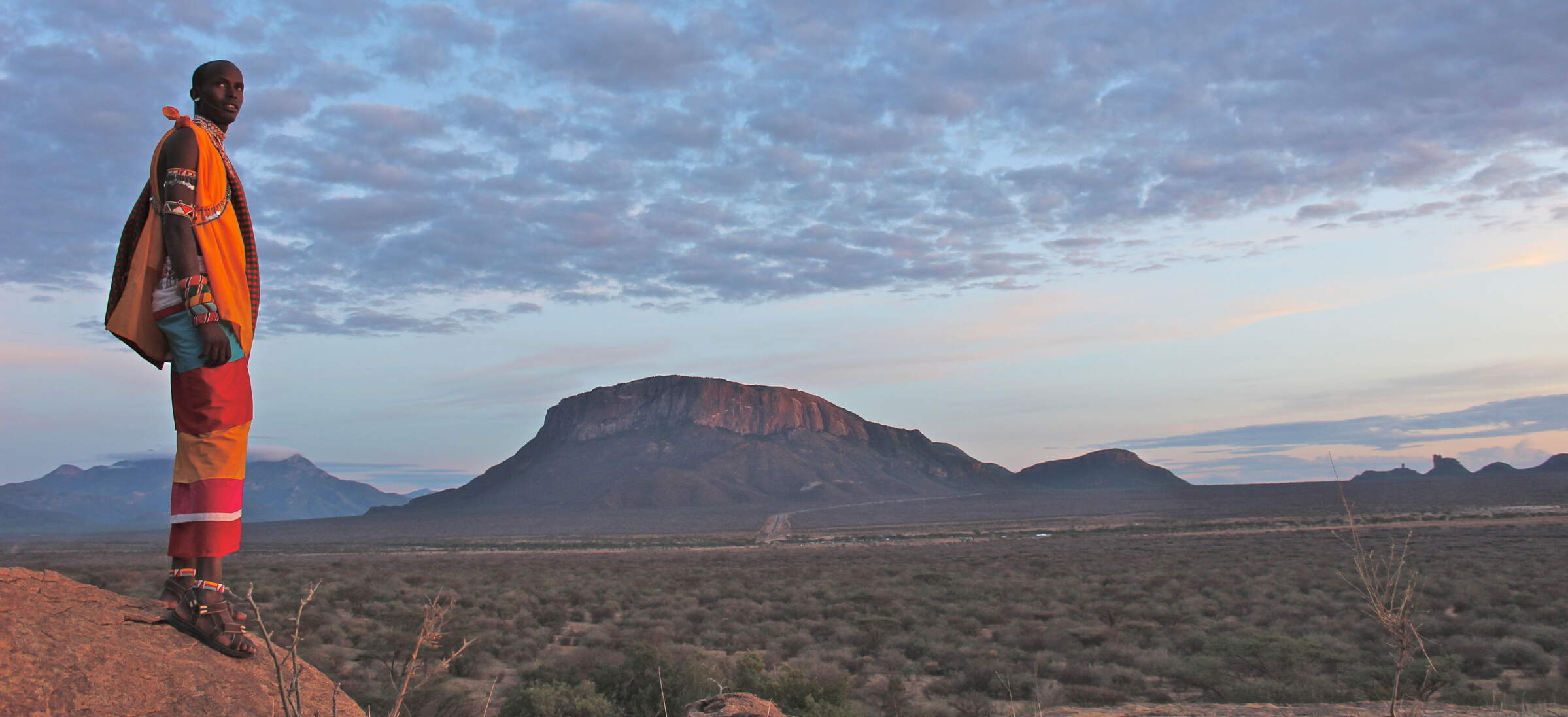Cottars 1920s Camp: Our full report
Located on its own private conservancy Cottar's 1920s Camp is owned and run by Calvin and Louise Cottar who ...
... established this luxurious camp in the 1990s. Designed in an authentic 1920s style, the camp follows the iconic Out of Africa style and has access to a remote part of the Maasai Mara.The main central area is a very large, open fronted mess and lounge tent, set in front of a manicured lawn. The comfortable lounge area is densely furnished with armchairs, coffee tables and sofas. Old sepia photos hang from the walls and brass lanterns from the ceiling - it really does feel like stepping back in time. At the other end is a large dining table where communal meals take place.
Other shared areas include a sparkling blue swimming pool with lovely views and plenty of sun loungers to relax on. This is at the far northwestern end of the camp, meaning it can take about 10 minutes to walk there from certain tents. There's another mess tent near the pool too, where meals can be served on special occasions.
There is also a large shop tent – the "Dapper Flapper" – stocking interesting but costly curios from all over East Africa, including some really beautiful hand made jewellery.
Cottar's has an organic herb and vegetable garden that supplies the kitchen and it uses solar- and wind-generated electricity as well as a generator. These initiatives have helped it achieve a Gold eco rating from Ecotourism Kenya - one of only a dozen similarly rated camps and lodges in Kenya.
Cottar's roomy guest tents are very widely spaced apart, and thus extremely private, and all have lovely tranquil views out over the bush. However distances in the camp are relatively great, meaning it can take a good five minutes to walk to your tent from the mess or vice versa. Although the camp is completely unfenced, and does occasionally have large mammalian visitors, you can usually walk around camp during the day unaccompanied. At night, however, askaris escort guests at all times. Each tent has a two-way radio for calling for an askari or asking for room service.
The tents comprise six twin- or double-bedded tents and four double-sized family tents in a separate area. They all follow the same 1920s theme. Each is furnished with a large double four-poster bed or twin four-poster beds draped in mosquito netting, with dark wood furniture. Old pictures, campaign furniture and brass gramophones set the scene. The overall look is aiming to be classic, although perhaps feels a little tired in places.
At the back of each tent the bathroom is a solid structure accessed directly from the bedroom, with a walk-in, plumbed-in shower and a separate flush toilet. Along with the rest of the tent, the bathrooms in particular could benefit from improved lighting as it can be rather dark in there.
Activities at Cottar's 1920s Camp include day and night game drives, safari walks, bush baths and bush meals. A visit to a Maasai village can also be arranged and there's a spa offering various treatments at additional cost. During our most recent visit in 2019, we didn’t find the guiding to be up to the standard we have previously experienced, especially for a camp with such a high price tag. We would hope the camp would return to offering a more consistent level of guiding in future.
Our view
Cottar's certainly may have been one of the best camps in the Mara, but it now has stiff competition from newer operations. It’s classic, pioneer camp style, long heritage and private concession are still plus points in the busy Maasai Mara, although the varying standards of guiding and hosting may impact the overall quality of stay.
Geographics
- Location
- Maasai Mara Conservancies, Kenya
- Ideal length of stay
- 3 nights
- Directions
- Cottar's 1920s Camp is a 10-minute drive from Cottar's airstrip, or around 1.5 hours from the busier Keekorok airstrip. One local airline flies to Cottar's airstrip, the rest to Keekorok.
- Accessible by
- Fly-and-Transfer
Food & drink
- Usual board basis
- Full Board & Activities
- Food quality
- Dining is communal, although guests can choose to sit to eat whenever they choose and it is not hosted by the managers. This can result in rather chaotic mealtimes, with different groups eating different courses – but it does make it more flexible for individuals.
The overall standard of food is good. Breakfast in camp offers the standard safari fare of cooked dishes, as well as cold continental choices. However most guests will leave camp early with a picnic breakfast to have in the bush.
Lunch is generally laid out as a buffet, with a selection of light dishes such as quiche, accompanied by a variety of simple salads.
Dinner is a set three-course menu. In 2019 we had soup and fresh bread to start, followed by a lovely fish curry and a fruit salad for pudding. - Dining style
- Group Meals
- Dining locations
- Indoor and Outdoor Dining
- Further dining info, including room service
- Breakfast can be served between 6.30 and 10am, lunch from 1.30pm until 2.30pm and dinner from around 7.30pm. In practice, all meal times are flexible. With an hour or two's notice, meals can be served by the pool or in front of your tent.
- Drinks included
- Depending on your accommodation option, drinks are either mostly included (with the exception of Champagne, fine wines and premium spirits) or paid for separately and settled at the end of your stay.
Children
- Attitude towards children
- Cottar's attitude to children is very positive. Calvin and Louise Cottar have their own children, who have partly grown up in camp.
- Property’s age restrictions
- None.
- Special activities & services
- Nannies are available for babysitting services from the main camp's housekeeping staff.
In terms of activities angled towards kids, children often do a sort of "Maasai Warrior School" (and mums and dads often like to join in!), involving tracking footprints and scat, learning dances and songs in Maa, and practising skills such as spear-throwing, bow-shooting and fire-making.
Depending on the flexibility of the family, even quite young children can often be accommodated in these activities, which typically take place after lunch before the second game drive, or if it's too hot for that as an alternative to the second game drive. They sometimes incorporate a nature walk not far from camp, with an armed escort and suitably equipped guides/s, with a radio to call a vehicle at the end. - Equipment
- Cottar's have one baby cot with mosquito net, one high chair and one baby bath.
- Generally recommended for children
- The huge family tents work very well for children and the swimming pool is a bonus - though beware, there is no lifeguard and your children will need supervision, especially if there are other guests using it who are less keen on youngsters.
Our travellers’ wildlife sightings from Cottars 1920s Camp
Since mid-2018, many of our travellers who stayed at Cottars 1920s Camp have kindly recorded their wildlife sightings and shared them with us. The results are below. Click an animal to see more, and here to see more on our methodology.

100% success

100% success

100% success

100% success

100% success

100% success

100% success

100% success

100% success

0% success

0% success

0% success

0% success

0% success

0% success

0% success
Communications
- Power supply notes
- There is a generator to ensure 24 hour power.
- Communications
- There is WiFi at the mess tent. Mobile phone coverage around the camp is limited.
- TV & radio
- In the case of major sporting events a plan can always be made - either using the TV in the private house, or at the staff quarters.
- Water supply
- Other
- Water supply notes
- Water is sourced from a spring, which gives very pure, slightly warm water. A South African filtration system purifies it further and produces hot and cold, still or carbonated drinking water. The water, which is regularly tested for purity, fills the jugs in the rooms and is used for drinking water on game drives, in Cottar's own, branded aluminium water bottles. These can be filled from your tent or from the dispenser in the mess tent.
Sustainability
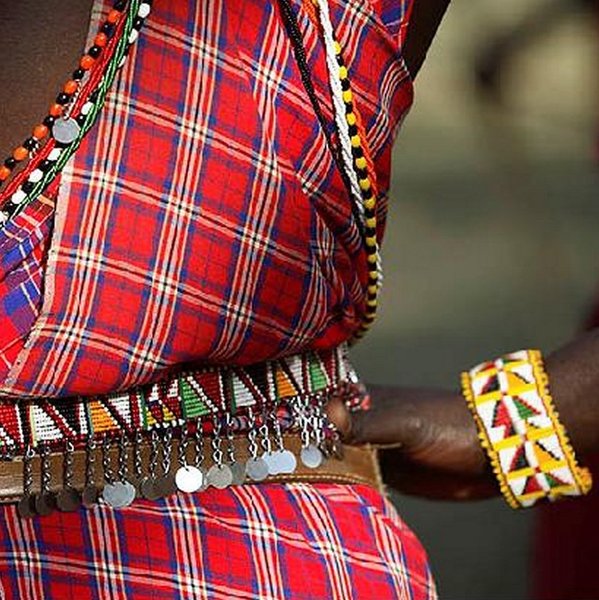
Re-creating traditional Maasai dining experiences
Designed in an authentic 1920s style, Cottars Camp is a family owned business which takes pride in its holistic approach to environmental conservation. The Cottars` biggest strength is its commitment to make its visitors reconnect with the nature through authentic and sustainable meal experiences.
The lodge grows organic herbs and vegetables in its own garden which, apart from a providing a better-tasting food with a higher nutritional value, also minimises the environmental impact due to the reduction of chemicals usage. Moreover, drinking water is exclusively extracted from a natural spring nearby, thus limiting the environmentally-heavy cost of importation.
Cottars Camp is also taking the food experiences to a new level with the bush meal adventures. Surrounded by the African wildlife, guests can enjoy traditional dishes while observing the natural habitat of Maasai Mara. The lodge also offers guests opportunities to participate in the gardening activities. By helping the local staff grow and cultivate the plants, tourists have the chance to see where the organic ingredients are coming from.
This initiative has been certified by Ecotourism Kenya with Gold Eco Rating and by Green Globe award for environmental practices
See more great sustainability projects in Kenya
Health & safety
- Malarial protection recommended
- Yes
- Medical care
- First aid kits, a trauma bag and a number of first-aid trained guides area available. In a serious emergency, their own airstrip is a few minutes drive away, and a helicopter can land right in the camp.
- Dangerous animals
- High Risk
- Security measures
- There are day and night askaris around the camp.
- Fire safety
- There is a guests' health and safety manual, good numbers of fire extinguishers, frequent fire training and firebreaks around the camp.
Activities
4WD Safari
Birdwatching
Cultural excursion
Fly-camping
Guided walking safari
Hot air ballooning
Night drive
Private activities
Extras
- Disabled access
- On Request
- Laundry facilities
- Laundry is included in the rate. It's hand-washed, line-dried and returned ironed. Underwear can (unusually) be included).
- Money
- Foreign exchange isn't offered as very little cash is kept on site.
There are safes in the bathroom areas at the back of each tent. - Accepted payment on location
- Most currencies can be accepted, including US Dollars, Euros, Pounds Sterling and Kenyan Shillings. Credit cards are also accepted (MasterCard and Visa, not Amex) with no surcharge. Tips can be paid by credit card and will be paid to the staff in cash.
Other lodges in Maasai Mara Conservancies
Alternative places to stay in this same area.

